Interview with Troy Grady of “Cracking the Code”
Troy Grady isn’t simply described or categorized. An attempt to distill him down to one or two words invariably falls short of capturing the complex arrangement of many talents which he brings to bear in his creative endeavors. So, I invented a new word: Multiinstrumentalamediaentrepreneurialinguist. Webster’s, take note.
Troy Grady is the mastermind and primary creative force behind the groundbreaking web series, “Cracking the Code” which reveals the secret techniques employed by the virtuoso legends of guitar. The series unveils previously hidden nuances to the techniques that separate the all time great shredders from the six string punters clogging up Guitar Center and Youtube. (and, ahem, the blogoverse).
Troy’s keen intellectual mind, combined with a deep well of cultural references and visual media acumen has resulted in a series that is immediately entertaining but very dense and worth multiple repeat views. The series is part biographical, part historical and all educational. The guitar tuition alone is enough to justify a curriculum at the university level.
Troy’s project stemmed from a lifelong love of music, and a special devotion to the heyday of 80s era rock lead guitar. The germ of the project actually began in his time at Yale, where he was majoring in Italian, you know, as most budding entrepreneurial guitarists are wont to do. Viewers of “Cracking the Code” will quickly surmise Troy’s shrewd analysis, wit, and his sponge like absorption of culture both past and present.
D: Watching “Cracking the Code”, I can’t even conceive of the amount of time and effort that must have gone into the project.
T: It was harder learning the skills in the first place. Now we have this whole production system and language we use to describe these things internally between me and the guys (Troy has a team of 3 including himself) so it’s very easy to cook up these kinds of visuals now. But, it took us several, probably two years to actually develop that language, to get everybody with the same skills, to get to the point that any one of us could open up a project done by any one of the others.
In his blog, Troy describes the initial responses the team received when they would try and preview animations in process to friends, family, the UPS guy. The initial efforts weren’t so well received until the team had a sort of epiphany in that the animations didn’t have sound or music. In assembling the clips to allow room for sound effects and music, they realized that to keep an even and steady flow, they had to treat the vignettes as if they were a piece of music and apply a sort of rhythm to the process.
D: I thought it was really interesting in your blog how you mentioned the use of the “metronomic click”. How you ended up approaching it like it was basically an instrument.
T: Unless someone works in production, you can’t show someone a half finished project and get an honest appraisal for what it’s like. They can’t separate the analytical from the visceral. They don’t know how to look at that and say, “Oh, that’s going to be really great once you add music to it”, they just think it looks boring. It’s very much like trying to play unmixed tracks (music) to someone who’s not a recording engineer. They just sound bad. They’re like, “Oh, but it doesn’t have 2db of dynamic range, and it’s not brick wall limited” (this is a music production joke about the tendency of modern pop music to be so over compressed in an attempt to make it louder but resulting in a loss of dynamic range and vitality).
D: (laughs) As is preferred by John Q. Public.
T: Exactly.
D: What’s on the front burner right now?
T: There are no big projects, but we do two main things that make money. We make the episodes of the show and we have this lecture series that we started called “Masters in Mechanics”, which is a monthly, very detailed investigation of a particular topic or player. So it’s the juggling act between those two things and being pecked by the 1000 crows of everything else that you need to handle…
D: like interview requests…
T: …and customer service emails, blog posts, posting things on Facebook, writing articles for Guitar World, which is another thing that we do now with some regularity. Making episodes is the hardest thing we do because they’re the most involved, they take the most time, and it’s the thing that everybody clamors for, ironically that we can’t deliver as fast as we’d like.
So the lecture series was actually a way around that. By saying, ok, here’s something we can deliver, probably on a monthly basis, that is a huge amount of work, but of a different variety. So, if people want more of Cracking the Code, in some form, this is a way that we can deliver that. Whereas the show episodes are just going to have to take as long as they take, and until I get three more people here, there is no way that the pace is going to approach that of cat videos, and talking head blogs.
D: and that is your competition…
T: It’s my own competition, I should be working sometimes. I need to watch Maru jumping into or out of the box. I actually don’t know what our competition is, we’re pretty much doing the exact opposite of what you’re supposed to be doing on the internet.
D: Yes, I was joking about the cat video, as far as actual competition, you don’t have any, you’re in a league of one.
T: I guess, but the internet has enabled you to make cheap things that are reasonably entertaining with almost no work and a high frequency of output. But we decided to completely do the opposite and make life difficult for us, by trying to make things with a pseudo-television level of production value that take forever to do.
D: What’s a typical workday like for you?
T: I don’t know if we’ve really achieved a rhythm on that front. We do have an office, I have a studio that’s just down the block from the office, so that actually works out very well. I work better in an office setting. If I’m forced to work from home, inevitably naps happen at like 3 o’clock (laughs) that’s no good. Then I end up staying up way later than is really productive if you want to maintain any sort of schedule, so I like coming to an office. It’s usually a mixture of doing all the animation which we mainly do here, but any live playing and filming is done at the the studio, as well as soundtrack work which happens there if we need to record drums, or do anything, you know, turn on an amp or play drums. I tend to do that from the studio and I’ll do all that stuff early in the morning if I can and then come in here, hopefully by the middle of the afternoon at the latest and then take all that stuff and start assembling it or editing it.
So, it’s almost like going fishing in the morning. You get up really early and you go and turn on all the gear and see what comes out, see what you catch. You put it all together and come back to the office and put it all together and see if you’ve got anything good. So, that is one rhythm that we have, on days when we’re doing heavy show production, and that’s usually toward the end of the episode when I start doing all the soundtrack stuff. We’ll plan for the soundtrack from the beginning, but we’ll only start doing towards the end once we have rough edits of all the animations together because sometimes the timing of the one thing influences the other thing. We’ll go back after the animations, and say “Oh, give me one more bar of space here because I want to have this particular thing happen in the song”, and I sometimes won’t know that until I’ve actually done the song, usually to a scratch version of the animation. So, it’s this iterative process, but that’s the good part of the process, because it’s usually towards the end which means we’re getting close to finishing it.
D: It’s probably a fluid process.
T: Yep, and the seminar stuff throws a monkey wrench into that, just because filming those 3-4 hour video marathons is entirely in the studio, and that requires planning, and a certain amount of caffeine and sustenance (laughs) to make it through seven hours worth of that. Then making sure you’re got it all and then invariably having to go back and edit and film these lick (guitar) packs that we distribute along with that. These are slow motion examples of things I talk about in the seminar, some of which I record before the seminar, and others of which I have to go back after we film the seminar, because I mentioned five different things that I wasn’t planning on mentioning and then we have to go back and film those things so we can include them.
D: Have you found yourself hesitating to answer a question or make a reference, because, like, “Oh my god, I’m going to have to demonstrate now”
T: Oh, yeah, absolutely, there’s whole topics, all the time. In fact, the guys are always trying to get the episodes to be shorter. Invariably, they become longer over time. This one that’s coming up, the Eric Johnson one, there was a whole scene involving Jimi Hendrix and the Mixolydian mode, which was really cool, and we were going to do these psychedelic colors, and Jimi shooting rainbows out of his guitar, and we had to cut that because of time. That didn’t make it into the episode, but it’s in the notes that we supply with the downloadable material.
D: What are your earliest musical memories?
T: My parents are rock and roll generation people. We drove around in the 70’s with Rod Stewart blasting on an 8-track in the car. I think growing up in a music friendly house was obviously of key importance because I have friends whose parents were from a generation prior to that, who listened to “Fiddler on the Roof” and Gershwin, and who were not very friendly to rock music and thought it was all a waste of time. In my household, even though they weren’t musicians, they went to shows in the 60’s and saw, like, Grace Slick walk onstage at the Fillmore East at 2am, just because she happened to be in town that day and was unannounced and just showed up at some other show. This was before the era of arena rock, and you could walk into Cafe Wha? and see some amazing act that you could throw a rock and hit from 20 feet away.
I grew up understanding that people like Eric Clapton were geniuses. They weren’t rock and roll rebels, these were people that, if you did music, this was a thing to be admired. That’s not just true of my immediate family, but also my uncles and aunts, there were a bunch of musicians there, and it was understood in my family, and I don’t know why actually, but it was understood that this was an acceptable thing to do with your life.
Being in the right environment certainly helps and having a supportive family environment, where things are tacitly acknowledged to have value. Even if someone is not beating you over the head and forcing things on you, if you’re a kid and you see your parents doing a thing and enjoying it, it only makes sense that is going to have some residual positive impact.
D: Do you remember the first music you liked, or the first music you bought?
T: That’s hard to say, because I know when I was very young I had the little Micky Mouse record player, all sorts of kids stuff on 45s and I remember my grandmother giving me Englebert Humperdinck records like “Cuando Cuando Cuando” and “Please Release Me”, (laughs) and I used to listen to that, but I was not a rock fan as a kid per se, because that was what my parents liked and I didn’t know what the Rolling Stones were, or that they were such a big deal, or why you had to wait by the phone to call the radio station and win tickets to the Tattoo You concert, I didn’t know what these things were. But, that’s what they did. But, I liked Billy Joel, because we’re all from Long Island, so that’s a religion.
D: Well, they issue those, right? They come in the mail, “Here’s your new Billy Joel album”.
T: They do, yeah. Absolutely. It’s exactly like a Springsteen in Jersey kind of thing, perhaps less well known, but it’s exactly like that. Everybody knows the guy, or everybody knows the music and has some connection where their friend’s uncle’s roommate’s gardener was connected to Billy Joel in some fashion. So, I started on piano, it was the first instrument that I actually played, and of course Billy Joel music was the first stuff that I played. We did everything, from ironically not “Piano Man” first, probably more like “Scenes from an Italian Restaurant” and “Summer, Highland Falls” and all the stuff that are more known to people who know the b sides and all the obscure songs.
D: “And So It Goes”?, I’m sure you know that.
T: Oh yeah, and everything off of “Streetlife Serenade” is great, “Turnstiles” is great. All those early albums had this very melancholic, almost folksy vibe to it. They were all great piano songs, for various reasons. Then there’s the obvious sort of “Eruption” stuff like “Angry Young Man” the hammering on the C, the middle C, and then “Root Beer Rag” and a couple of others that are a little more showy.
D: How old were you when you started on Piano?
T: Oh, I don’t know, single digits. We had an air organ, when I was really young that you plug in, it was like an accordion where you had buttons on the left for chords, and you had like a two octave keyboard on the right. My dad actually taught me how to play this, and to this day, he has no musical ability that I can think of. The music they gave you with this was numbers, there was a little stick on strip of letters that went over the keyboard and the chords on the left were marked black for minor and white for major and the little book we had “On top of old smoky”, and it said like “1 - 1 - 3 - 5”. You would hit the white number one that would play the c major chord that went along with this and he actually showed me how to do it and that’s how I actually started playing keyboards.
D: It’s like Piano tab (tablature, commonly used for guitar is an easier version of sheet music)
T: Kind of, yeah. That’s exactly what it was, and my Dad’s a very technically minded guy, worked in home improvements for a number of years so it was no problem translating that. It was after that they put me in piano lessons at some point and that went up to about probably 8th or 9th grade when I actually stopped taking lessons because at that point I knew enough that I could just play the things I wanted to play. My sight reading abilities were beginner level. You were playing things that were like easy piano versions of stuff and I couldn’t stand it, but my composing and improvising skills were already kind of there at that point. I finally said, and I felt guilty about asking parents if I could stop going to piano lessons and they were like, “Sure, no problem” because at the point all I did was play piano all day.
D: So you were learning stuff by ear?
T: Oh yeah. There were a few key insights early on. Once I realized that “Oh, that’s what a chord progression is?” I didn’t know what that was, but once I realized that was the building block of modern pop music, essentially, everything took off from there and within a year or two, all the conventions of pop music had basically been totally distilled in my brain. I could listen to stuff on the radio and just play it. I was always using the SK1 for piano licks. We talk about this very briefly in the show, there’s a scene where I show “The Ballad of Billy the Kid” solo being played on an animated piano. That was one of the very first things I did with the SK1, was slowing down Billy Joel licks, and that was all major pentatonic stuff mainly on the white keys like C, F, and G. Piano has its own idiosyncratic vocabulary that’s not so easy to translate to guitar playing so I can’t say the one necessarily fed to the other, but these are all the interests just being mixed together, and the same tools were used to decipher them.
D: I was amazed that you thought of the sampling approach. I love the newer things, the “Amazing Slow Downers”, but just as you show in the video, the old approach was to put the needle on the LP, play a few seconds, keep trying to put it back in the exact same spot, and you wear it out and scratch it and it no longer plays.
T: I’m a little annoyed in that I think our experiences were so idiosyncratic that had I had an older brother or something, he would have been like “Dude, just get yourself a variable speed tape recorder and stop killing yourself”, but I didn’t know that people were doing this in these ways. From working on the show, I’ve gotten so many emails from people with their own bizarre stories that range from modifying the rollers inside of their tape decks so that even though it was spinning at the same speed, with the bigger roller it was effectively going slower. I’m using the wrong terminology here, but basically physically modifying the tape deck to play back at a different speed so they could accomplish the same thing. There were a million different ways of doing this and it sounds like nobody really knew how anyone else was doing it, whereas now, I’m going to sound like old school, but now you just drop into any one of three or so applications for doing this, and there you go.
D: It’s on your phone with everything else. Kids these days…
T: I know. The video games, the Rock Band games were huge for that. I don’t know if you remember when people started ripping the individual tracks.
D: Yeah right, the multitracks, the moggs and the oggs. Love that stuff. (moggs and oggs are proprietary audio formats typically used in the various rock band video games. They were isolated individual tracks of each instrument which would allow a listener to hear individual parts and often revealed nuances not heard in the regular full band version of the song).
T: I was hearing stuff that I had waited for 30 years to hear.
D: Absolutely. I know some of it was covers, but some of it’s the actual stems.
T: Only the first version of the game was actual covers and they did a really good job, but no one knew the game was going to be that popular and because it became so popular, apparently it sparked this whole quest to get these master tapes which were hidden in all sorts of weird locations like buried in producer’s basements and the actually found a lot of them because they had a reason now finally now to get the isolated tracks and make money off it. So the popularity of the games helped resurrect a lot of these possibly lost tapes. So here I am listening to isolated guitar tracks from Van Halen’s first album.
D: Van Halen was amazing when you could first hear just Eddie.
T: Oh yeah! And you could tell it was live as a band because you could hear the drums bleeding in ever so slightly into the mic, or maybe it was crosstalk on the tape, but I prefer to think it was live mic bleed because that’s cooler. But you’re hearing this and going, “Oh, that’s what he played there” like where Dave (David Lee Roth) is yelling normally on the record (laughs)
D: Yeah, something inane…
T: Yeah, right. Someone then, of course, posted these on youtube. I remember looking up, “Ain’t Talkin’ Bout Love”, the guitar track, and it’s there, and I’m reading the comments, and one of the comments, obviously someone very young, who said “Oh, I just heard this great song yesterday, and I went on the internet to see if I could find the guitars, and here it is!!” (laughs)
D: I know, I hate you.
T: Yeah, it’s like “Kid, you don’t know man!”
D: Exactly. It’s like “You don’t know the long slog of people trying to suss out Eddie Van Halen tracks on LPs”
T: I know. I love to romanticize the good ole days, but the learning opportunities are just so much more immediate now. You can pickup more in 6 months on Youtube, things I didn’t even know existed.
D: The tools are great, the Amazing Slow Downers are great when you approach it that way, but the one great thing about that era is that you basically were depending on your ear, there weren’t tabs for everything. Tabs are great, but if they become the crutch, you know full well…
T: Right. But I think of things I had to play that I didn’t know until at least six years of playing like harmonics, for example. Right hand harmonics (sometimes called false harmonics, the technique involves fretting a note on the neck with your left hand and holding usually your right index finger at a spot 12 frets higher and striking the string with your right thumb or pick. It’s a technique pioneered by Lenny Breau and Chet Atkins) - this was a thing I had heard, and had no idea how that was being done for the longest time. I remember being in the guitar store and seeing a salesman at Sam Ash fretting some super low note and hit some crazy Eddie Van Halen style high pitched right hand squeal and I’m looking at him like he sawed a woman in half. I realized that the learning process was so uneven, even for people who were talented and were seeking information, it just wasn’t that readily available.
D: I saw on your blog you had interviewed Tommy Emmanuel. He talks about when he first started learning Chet Atkins songs, he just kind of intuitively figured out that he was playing the bass line, chords and melody. (all at the same time, live) He could just tell. Everybody else just assumed it was a studio trick, it was a bass line (played by a bassist), it was multi-tracked. But, that was his whole world and he just focused on it, he was going to figure out how to play it. There’s something to be said for people who grew up in that era and didn’t have a choice.
T: He tells a funny story about the first Chet Atkins song he learned, called “Windy & Warm”. He listened to this forever and he couldn’tfigure out how the fretting worked and he finally was able to do it, but it was all these weird stretches and many years later when he met Chet Atkins and told him how hard it was to learn and Chet said “Oh, I used a capo”. And Tommy’s like “Auuggghhhh!!” because he never knew.
D: He also tells the story that he started off using a regular pick, playing pick-style (holding a pick between the thumb and index finger and using the middle and ring fingertips to pick strings. A thumbpick frees up the index finger since the pick slides over the thumb and doesn’t have to be grasped by the index finger) but he saw an album cover where Chet Atkins was wearing a thumbpick, and he was like “That’s what it is!”
T: Right, exactly. Who knew? Which is why it’s so fascinating that these guys who had no one to learn from at all, got as far as they did, it’s almost like magic. Who did Tal Farlow have to listen to? They had radio, maybe. If you wanted to hear a song again, you just had to wait around for awhile until they played it again. (laughs) There were no other guitar players, no one playing the super out there stuff with the advanced picking that he was doing. He listened to Charlie Christian, who was a big influence. Charlie Christian is a great player, but of a decidedly earlier era, who did not have all the sophistication happening, the least of which on the harmonic side, but not the picking side of it either when you look at Tal’s playing now you can recognize right away what he’s doing. You can see the sweeping in both directions, you see two way pick-slanting, and it’s amazing to look at this and go “Oh my god, no one stood a chance”. No one was going to know what this stuff was. Now it’s plain as day, you don’t even need to slow it down to see how these things work, you can just watch the guy because his hands are so big, any time he leans the pick in one direction or another you can see it with his giant thumbs. He probably has no conscious awareness of doing that, and how he figured that out in the 40s, I don’t know.
D: The thing I found amazing was how these guys independently figured this stuff out, even though they couldn’t really express it. I was surprised that Eric Johnson and Yngwie’s (picking) approach is pretty similar. I would never have thought that in a million years, just because they sound so differently, they play different scales and whatever, but technically that’s amazing.
T: Absolutely. The musical styles being very different, but the string switching styles are essentially the same. That’s really what the similarity is. When you start to look at picking technique as a system of parts, each of which can be swapped out for other components, that’s how the similarity becomes more apparent. The way that these lines are organized, the rules that govern that are similar. That’s why I tend to think of them as being the same, but obviously there are other components of what they do that are not the same, or to varying degrees, only related. But I’ve come to see the string switching side of things being the most influential in determining what the player can and can not play, or what kind of things they are likely to build their style around, because that’s the biggest obstacle mechanically as far as picking is concerned, getting from one string to another.
Your system for doing that is largely what determines the kinds of things you’re going to write and play. The greats don’t necessarily acknowledge this in a conscious way, but it’s very clear that they have a way of sensing the path of least resistance and they move forward and build all their cool licks and tricks around the things that are the easiest. It’s fascinating that they do in fact know enough that they can sense that. I’m sure we all got to a point that we said “Oh, this weird three note per string stuff is hard” but I kept banging my head against the wall trying to do it, whereas I am sure that at some point, when I was fourteen I probably played some two note per string lick, probably played it really fast, or a four, six or some even number of notes, probably played it really fast and clean, probably didn’t know why, and didn’t think enough to recognize it to stop and say, “Oh, I should do that”, focus on that type of thing. Whereas, a guy like Yngwie, by the time he was twenty one, he was writing albums and had built an entire style like this, so clearly he had reached that point, probably many years before that. Which is crazy to think. Probably by the time he was seventeen, his entire mechanical system was in place, enough that by the time he was twenty one he had albums worth of material and he was touring with major bands and writing their material too. That is just mind boggling.
D: I haven’t seen too much of the Electromagnets, I’ve seen Eric (Johnson) play their tunes, but if you look at his very first Austin City Limits appearance, and I don’t know how long he had been playing then, I think he had been playing for awhile, it was like ’84, he was completely developed.
T: Oh yeah. He was also older by the time we saw him on Austin City Limits.
D: You’re right, the ’84 one, he was probably around 30ish or so (Eric was born August 1954). One comment about the Yngwie/Eric discussion. The thing that never occurred to me is to start a descending scale (going from the higher pitched to lower pitched strings) with a downstroke. It’s always been intuitive to me to lead in the direction that you were going.
T: You’re saying that if you were playing a scale that was descending you would likely start on an upstroke simply because it moves in that direction.
D: Even with the two note per string patterns. As soon as you released the Eric stuff, I was like, “Good”, because that’s the guy, if I want to model anybody, that’s the guy.
T: That’s not too far off. There’s some validity to that idea, even if it’s not a strictly logical solution. There are playing styles that share some similarity to that mindset, for example, when I interviewed Frank Gambale. Frank is a two way pick-slanter, you can see it whenhe does any sort of swept arpeggio, the pick leans very heavily, and I think we always knew this. We always saw the great sweepers doing this, people like Jason Becker, it just wasn’t obvious that it also had something to do with alternate picking. But it does, because not all of Frank’s playing is sweeping.
There are many times, even in the context of a swept passage, in which he will switch strings using alternate picking, but Frank is always leaning the pick in the direction of his motion. Not so much that he’s choosing pick strokes that move in that direction, but the pick slant itself leans in the direction that he’s moving. The reason he does this is because, if you think about the Yngwie picking system, which is a one way pick-slanting system, the ascending side of the Yngwie strategy, where the pick is leaning downward, permits him to switch strings using picking in all cases, so in other words if he’s moving from a lower string to a higher string on a downstroke, then he can use sweeping to do that, so he doesn’t have to jump over the string.
If it’s an upstroke, then he can do it just using alternate picking because that’s how downward pick-slanting works. If you flip that scenario upside down, you can do the exact same thing going the opposite direction. You can use upward pick-slanting when you use descending lines, and you will always be able to switch strings with picking, no matter the occurrence. If it’s an upstroke string change, then you’re going to use sweeping this time, and if it’s a downstroke string change, you’re going to use alternate picking. This is roughly the Gambale system. It’s a bi-directional Yngwie, if you want to think of it that way. That’s why you don’t hear legato in his system, he only plays lines where the picking is going to work out that way, but when I interviewed him, I made him play a line that was sort of backwards for him. Where I said, “play a descending pentatonic line, but start it on a downstroke”. He understands pick slanting, he doesn’t call it that, but he knows the movement. I asked him why he did this. “Why do you lean the pick that way?” He said “sometimes I want to sweep in that direction”, which is certainly one way of looking at it, but if you’re descending with upward pick slanting that lean helps you sweep in that direction.
But I said, “do a pentatonic scale, but lean the pick down”. He goes “Aughh, why would you do that, it’s so awkward”. But he did it, and he did it perfectly. So, in other words, if you’re doing two notes per string alternate picking and you lean to downward pick slanting then you start each string on a downstroke, then you would go down/up and everything would work out fine like the Yngwie system and Eric Johnson. So he did it, he did it perfectly, and he goes “Aughhhh, who would do that? It’s weird” because now I’m having him lean down but play a descending line which is effectively like leaning down but moving up at the same time. There was no other way to do it, it’s the only way it works, but that’s not how he thinks.
It’s fascinating, but the idea that the movement has to somehow flow with the melodic flow of the line is not all that farfetched, and in his case, it makes sense, it’s just leaving abunch of other possibilities on the table, like the entire Eric Johnson system, for one, simply wouldn’t work that way because it’s a one way picking system. So, if you want to do his stuff, the easiest way, really the only way, actually, is to use downward pick-slanting, because of all the sweeping also.
D: Especially how fluid he is with the two note per string patterns, and I love how you stress that a lot of people avoid this distinct sound that you have available that definitely sounds different, and his use of pentatonics and you can’t tell if it’s major or minor, that’s a big part of it too.
T: Yep, yep, absolutely. I think a lot of people can benefit from playing his style of lines, because it completely sidesteps the whole issue of playing really fast on a single string, which everybody is sort of obsessed with. You can tell from listening to him that there isn’t ever a point where he does that (laughs).
D: Yeah, I don’t know of any Eric Johnson tremolo (fast picking on a single string) Eddie Van Halen type picking, he doesn’t do that at all. It never really occurred to me, but you’re right.
T: No, and nor does he play any sort of patterns that move around on a single string like a Django or an Yngwie. What he think he does is because there are so few ways to play what he plays, other than the way he does it, is it minimizes the opportunities for mistakes. The whole idea of hand synchronization isn’t really a thing with him, because he isn’t just picking really fast with the right hand and trying to sync up the left hand, that’s not a challenge. It’s really just one movement, it’s like hitting a snare drum. There’s a downward component, and an upward component.
There’s never a point where he’s just trying to move the hand really fast, where everything turns to mush. Which, of course, is like the classic bad guitar playing when you're first learning picking is this sloppiness of the hands not being synchronized, then trying to move that across the strings. All of this is baked into his strategy already. It’s already solved for you.
D: You just turn up the gain, that’s all you need to do, and you’re all set…
T: Yeah (laughs)
D: … When you want to pick fast and sloppy. Changing gears, back to you a little bit. How would you define what you do artistically? How would you define your art? You can make this as broad or as narrow as you want.
T: I’m not sure I understand the question (laughing).
D: Looking at what you do. Obviously it’s creative, it’s multimedia, there are multiple elements that go into it. Let’s consider this from another angle. What are you hoping to achieve with the creative projects you’ve made? It could be “Cracking the Code”, it could be original music. What’s your goal as an artist, what are you trying to do?
T: My initial response is, I don’t use the term artist, because it just seems highly pretentious (laughs).
D: We’ll give you a pass, this is how the question was asked.
T: Yeah, and I don’t mean to accuse you of accusing me of something…
D: (laughing)
T: It’s just I’m very pragmatic about a lot of things, and so for me it’s like “Oh, here’s a problem I can solve, and it feels good to solve a problem, here’s a thing where some of my skills can be useful. So it’s exciting to do that, and it’s even more exciting to do that for a living if there’s a way we can make that fly. So, ultimately, to be able to do this in any fashion and actually have this be a thing I get up every morning to do is very satisfying, just for that reason.
I worked for a number of years in executive recruiting before this, that was fun for a lot of reasons, because it was tech oriented, and there’s always be a component of technology in the things I do. That was also another entrepreneurial situation in which I ran a company, and so all the other associated things, it wasn’t just doing recruiting and making placements and working with clients, it was also running the business, building the website, writing the software that we used internally, so all that stuff was fun. I enjoy doing that kind of thing, and I enjoy using as many of the things that I do at any given moment, in any given undertaking, a certainly this stuff here probably hits on more of them than anything I’ve done before, in the sense that, every single skill that I have - technical, creative, or otherwise is getting utilized here.
Even the business side of things is not going to waste either, being able to take a meeting or send an email, that’s currency in the digital era in the modern business world. I spent a lot of time doing that and building relationships, and I know how all that stuff works, and now I’m doing it in a slightly different arena. I like what we’re doing only because everybody likes to have a purpose. I can get up in the morning and feel like we’re doing something that makes the world a little bit better place, even as much as I enjoy the subject matter itself and just simply doing it on a physical level. I don’t know if that answers the question.
D: No, that’s perfect. Whether or not you use the term art, it is art, you could have just done a video on Youtube and said, “look, I did this high frame rate video analysis” and just distilled it down. It probably wouldn’t have been anywhere near as effective. You could have taken the easy way out. You’ve put it in a package, like you said, that’s using all of your skills and knowledge. Your putting it in a format, that even though it’s highly technical in some senses, and granted, guitarists love to get into the weeds on stuff, butit’s in a format that even a non guitarist or non musician would enjoy watching it.
Another question - What’s your educational background?
T: I was an Italian major at Yale, and there was no particular intent there to do anything explicitly academic, it was just, I like languages, and the base skills are kind of in in the musical/linguistic arena. That was stuff I enjoyed doing. A lot of people look at language class and go “Oh, God”, that switch is just not turned on in their brain. Conjugating verbs is like, they live in fear of doing it like fear of long division or something. But for me it was always easy and fun. Italian was the main game, but I also did Spanish and German also. The language element is sort of conceptually related to the musical element. “Cracking the Code” as a project actually started in school, I did this as an independent study. While I was there I actually wrote the manuscript that basically would be covered, all the techniques, pretty much up to what we’ve seen in the show. That whole downward pick slanting thing was something I discovered in school and it thought “This is my area of expertise, I should do something with this”.
Of course, the first stab at that was as overwrought as the show currently is, except in print form. It was just pages and pages of Dante allusions, psychology concepts, and I still have the dot-matrix printout in my house somewhere. There was actually I guy that I worked with who was a grad student at the time, Andrew Leonard, who is a fantastic guitar player himself, and he was a little bit older than me, and was like a 70s fusion fan who then went on to play classical guitar, and he was in the classical guitar program at Yale at the time, so he was actually my advisor for this independent study that I had cooked up. He ran the guitar program at, I want to say, a school in North Carolina, and he’s in Massachusetts now, I forget where, he teaches. But he’s a serious, hardcore classical guitar player and you can see some really unbelievable clips of him on youtube playing things like Koyunbaba, a really impressive, fiery sounding Spanish classical piece. He got in touch recently, he found the website and said “I had no idea you were still doing this”. Turns out someone who watches the show was one of his students in North Carolina. So the circle is now complete.
D: The apprentice has become the master…
T: Not really…
D: I know, just finishing the quote.
T: He’s a hardcore academic in guitar, which it’s cool to see that those worlds overlap.
D: Your love of language, is that something you had growing up, you know, family members, how did you get exposed, or how did you get into language?
T: I think that’s another thing where the parental influence was like, “We’re going to have our kid learn another language”, because that’s a valuable skill to have. I give my parents a lot of credit for that. They gave me Italian lessons when I was young, only enough to do like the colors and the numbers. I remember we’d have a guy who came to the house who taught me how to say “Man, Woman, Superman, Spiderman” and all this stuff (laughs). But that was enough that, if you give a kid any indication that a thing is doable, then I think the reverberations of that are such that the enterprise seems very approachable, and not so scary.
Later on, New York State Public Schools actually have a great language program, well they did, I don’t know if they still do. Language was mandatory throughout high school and in junior high you take 10 weeks of four languages, and then you pick which one you want to specialize in. When I was in seventh grade we did Spanish, German, Italian, and French. Once you hit eighth grade, you pick one of those and that becomes your language class through like 10th or 11th grade. So I picked Italian because that’s what I had previous experience with as a kid and I would say New York State Public School actually taught me to speak Italian, which is kind of amazing. I think it could have been done better, but the fact that it was done at all is kind of amazing. Because Americans are sort of famous for not being very aware of how people speak in other parts of the world.
D: Yeah, we all think English is the language everyone should be speaking. So you literally had 10 weeks of exposure (to four languages)? That’s so crazy.
T: This is a New York state thing, I don’t know if they do it in other states.
D: Well, it may be in other states, but in Texas it’s like, “Well, if you want, you can try a foreign language, but it’s up to you, maybe try Spanish?”
T: Exactly, well, we had a program, I’m not sure if it’s still the case, but in New York State there’s a Regent’s Board that decides all the things that you’re supposed to study in high school. There’s a track that you follow, that’s the high end of the public school track where you get a Regent’s diploma, and I believe at the time, California was the only other state that had this. I have nothing but positive things to say about that. It’s kind of a common core concept, which I think has come under fire, for a lot of reasons which are probably specific to the teaching industry that I don’t really know about. But the idea that there’s this sort of Hogwarts type curriculum you have to master was a cool concept. I remember, Regents is in all these different subjects, you take language, earth science, bio, chem, physics, english, and then all the math, every year was a different level of math. Regents level math wasn’t anything super fancy but you got up to serious trigonometry right up to knocking on the door of calculus. Had I remembered everything I was taught in high school, I would be like the most knowledgeable guy on the block outside of people who are academic mathematicians (laughs), not that that’s saying much, but …
D: You’d be great on Jeopardy…
T: Yeah, I’d be Jeopardy champion and I’m a big fan of a certain amount of standardization because I know once I got to college and they said, “Here, do whatever you want”, then I did whatever I wanted which meant not doing anything hard anymore and just doing that stuff that was easy and/or fun. Maybe I’m not the right personality for that, maybe I need a little more boot camp. But I think there are certain people who take to that, people who are academics, who are going to dive deep into this particular subject, but for me I felt like it was a less focused experience that wasn’t the Hogwarts kind of training camp experience that I liked about high school.
D: Do you remember any really high point success or failures that you had, maybe moreso in music or in art, but creative pursuits in general? Do you remember any successes or failures that kind of changed what you did, or shaped how you developed?
T: In the show we’ve tried to portray a certain amount of these little victories, like using the SK-1 (this alludes to his discovery of using a very early and rudimentary sampling keyboard to grab a small section of audio and slowing it down so he could learn it on piano or guitar). If anything, I think those things were probably the most important because any one bit of information you could get your hands on back in the day could be incredibly valuable in terms of understanding work in the bigger picture, because again, information was just not easy to come by.
We had this once scene in the show that I really wanted to put in that I had to explain to the guys that work with me why this was a big deal, where all the metal guys are in the record store reading the tablature books, and trying to memorize the sheet music. I used to do that, I would go into like Sam Goody in the back, in the rack where they had all the rock songs written out, and I would try and memorize as much of the music, like these Ratt easy piano song books.
D: And they’re so accurate, by the way. I’ve got my Rush “Moving Pictures” sheet music book from 1981 over here somewhere, and it’s darn accurate, I can tell you.
T: Oh yeah, I know. I had the Van Halen I and II sheet music books at home, and there was no tab, it was only staff notation. Actually, I’ve gone back and looked at it and some of it was pretty accurate. It was always hit or miss, like you said, you never knew what you were going to get. Of course there were no tabs, so you didn’t really know how the hell any of this was supposed to be arranged. So having one moment, where you could figure out how something actually worked, on piano that was typically some kind of chord progression where you would go “I can do the flat 7 dominant 9th thing” and that’s like the Layla chord progression and now you go back to your tonic after that, and that was like one extra arrow in your quiver that you then could use and understand and write a song with.
D: When you were learning piano back then, by ear, were you slowing it down, just trying to keep up with the music, or did you get it on sheet music and then develop your ear, how did that progress?
T: No, it was all just chord progressions. You learned how to listen to that, usually by just following the bass, ultimately. For me, the piano journey is so different than the guitar journey because you don’t have to worry about the technical as much. You’re not concerned with playing the notes, because they’re there. There’s only one middle C, you just push the button. Whereas on guitar…
D: That’s true, you usually have five choices, at least.
T: Oh yeah, five times five times however many notes are in the phrase and then it quickly becomes unmanageable. So, someone like Yngwie, of course we knew what the notes in the arpeggio were, that wasn’t the hard part. We just didn’t know, or I didn’t know where they were being played and certainly not how he could be possibly be picking them at that speed.
D: Yeah, what’s he doing with is right hand?
T: I didn’t know what sweeping was. None of that’s present on piano, so piano guys will sit around and it’s all about chord progressions, just finding cool progressions and ways to play leads over them. In pop music in particular, it’s just, you very quickly realize it’s this very highly reusable system of a very small number of chord progressions that are different from another, and you’re always looking for new ones. So anything that’s outside, or moves out of key suddenly becomes interesting, like that Layla chord progression where, that cool chord they hit, it’s in the piano breakdown in Layla, which is in D, and then there’s a C9 right before it goes back to D and you’re like “Ooh”! what’s that, how do you play that chord and have it make any sense at all.
D: When you were taking your piano lessons, were you learning more of the advance chord forms, or did you figure that out?
T: No, those were the little victories. They taught me what a seventh chord was. As soon as I knew that , I was like, “Oh, that’s that thing that you’re hearing everywhere, and then all the sudden that unlocked like a thousand things. This one teacher I had was the guy who ran the music school in my town, and he was a real working musician from the club days in the 40’s and 50’s and he played swing tunes on piano, keyboards in bands. He taught me one or two of these jazz style kind of comping chord progressions, that alone, that was so much information there because I would have never figured out from listening to a rock or a pop song. Right away that unlocked a thousand possibilities. The vast majority of technical things I’ve learned, I learned from a tiny amount of technical stuff. This four hour volcano seminar (on Yngwie Malmsteen) we did, is one lick. Basically all these techniques I learned from dissecting this one 5 second lick from this instructional video. You can pull from this almost the entirety of his picking technique.
D: You talk about it, I don’t know if you use this phrase, but you see it in so many disciplines, “the chunking” - it’s like the guys who can memorize the 400 digit numbers, it’s all chunking, it’s pattern recognition.
T: Oh yeah, any of these breakthroughs, sometimes it’s these very specific and small breakthroughs that just help you understand a whole lot of other stuff. Like I said, back in the day, any little nugget you could discover unlocked a whole new dimension of possibility.
D: You allude to the fact, that you had the Yngwie stuff down for a long time. When did you start playing guitar?
T: Probably like seventh grade, I think it was the summer between seventh and eighth grade.
D: When did you get to the point, because you’re ridiculous now (ridiculously advanced at guitar, check out the link to his videos/page), when did you get to the point where you were like, “I’ve still got a lot to learn, but I’m pretty satisfied”, because you’ve had Yngwie down now for what, ten years or longer?
T: Oh, twenty. It’s in the show, the whole pop tarts thing, that’s real. That was exactly how it happened. I had no picking skills before that, that I could rely on, and that day, instantly from that point on, all the down pick-slanting stuff was done. It was maybe over the course of the next few months or so, it just sort of got baked in. At that point, and that’s not all alternate picking, it’s just in the Yngwie and Eric Johnson styles. Those were the guys I was listening to. Once I made that realization that it was the pick-slanting and switching strings after upstrokes, it was instantaneous. I could play it that day. Like minutes later, it was done.
D: That’s obviously a huge success.
T: Oh yeah, because precisely like many of us, I had the catalyst.
D: How long had you been playing when the pop tarts event occurred?
T: Like five or six years, but from like age fourteen to twenty, a very formative period when you don’t have anything else to do but sit in your room (laughs)
D: What was your daily schedule like, did you have an average amount of time you spent practicing?
T: Oh no, I was never a practicer. I was more like, just turning on “Unchained” (Van Halen song) really loud and just playing stuff. I had no patience for practicing, because it never worked. Now I’m a practicer, because now there’s a system you can follow that actually works. I’ve tried practicing and it never produced results. I’ve gotten better results from just kind of screwing around, not really paying any attention at all. But I wasn’t really a great player, I was a better piano player by a long shot, and a better songwriter. I could do your standard 80’s pentatonic, Eddie Van Halen pentatonic licks and some tapping, and that’s about it. We wrote all kind of funny songs, like this song “Food Town” we talk about in the show which was like a Beastie Boys/Weird Al kind of song about supermarkets. It was just a silly thing we used to do in my bedroom with the Casio sampling keyboards, all my friends would bring over their keyboards and drum machines and we would just do this kind of electronic rock guitar kind of thing. That was all kind of fun and games. In terms of the hardcore technique that your average kid has now just from watching Youtube, I was nowhere near that but I had spent enough years building up just basic things like hand speed and general music knowledge that when that pop tarts thing happened, it immediately explained why I had been having all these troubles trying to do picking, up until that point.
I think from that point, I was like a sophomore in college, so from about age twenty until approximately 30 or 31 I didn’t have the three note per string dynamic down. I just figured I was hearing it wrong, or there was some kind of catch. I didn’t have video, really. You couldn’t see what Steve Vai was doing. A good portion of what he does is in fact downward pick-slanting with sweeping, exactly the same way that Yngwie and Randy Rhoads do it. Of course not everything he does works that way, but so much of it did that I could sort of ignore the others as flukes. I didn’t own “Intense Rock” (Paul Gilbert), I never even watched it, so I didn’t even know that pure three note per string alternate picking was possible. It was just not a skill that I had, and it’s not a skill that Yngwie has, either, actually. So for ten years, that’s the only way I played and it just became second nature. It was with the Batio (Michael Angelo Batio) tape “Speed Kills” that I figured that out. That would be another success.
D: Do you play any other instruments besides guitar and keys?
T: I’m a passable studio drummer, only to the extent that I need to record patterns and parts. I probably don’t have enough drumming chops to play in a band and just be the drummer.
D: Is that something you did so you could write, basically?
T: Yeah, and I did a very brief, like one year, in marching band in high school, just enough to know what the issues were, but not to get any good at it. We all wanted to play drums, and we had drum machines and we were always trying to fake drums and get good drum sounds. That was always the mark of your recording skills, as a kid with the four track cassette, because you couldn’t mike up a drum set in your house, really. So well used drum machines, the better keyboards had the better drum sounds. The Casio SK1 drum sounds were almost laughably terrible, they sounded like a metronome, a little blippy, plastic noise. But then my friend got some advanced Yamaha thing and it had this incredible sampled drum sound, and we were blown away, it sounded like Trent Reznor to us, we were like “Oh My God”. So drums were always a thing, and as soon as I had the space and the time, one of the first things I did was to go out and get a drum set.
I did a little banjo in high school, that was another thing I sort of figured out, like Scruggs (Earl Scruggs) style bluegrass banjo, and harmonica was another thing I figured out, I’m not that great at them but I had a little insight.
D: I’m sure you’ve experienced that with each new instrument, the learning process is accelerated because you’ve learned all these other instruments, and definitely for string instruments you’re going to have some crossover.
T: Right, it is. The insight with the banjo is because there’s a thumb string which is an octave higher and that fast sound we all associate with, that Scruggs sound, this rolling and very complicated, sort of Baroque sound, turns it is just an artifact of having the damn thing tuned right, which I never knew how to tune a banjo, I had one, and you tune it right and all of the sudden there’s all these very basic rolling patterns become possible with very little effort and that’s the sound, as soon as I realized that, it was like every banjo song I had ever heard.
Harmonica, there’s a trick to that as well, playing blues harmonica, you play the harmonica a 5th above the key that you buy it in, and all of the sudden all those cool bending sounds become possible.
D: You realize that you have a fairly unique dichotomy in that you’re very analytical and creative, you know, the whole right brain/left brain thing, if you subscribe to that. That’s what I think is so great about the whole project is that you have that analytical mind that typically doesn’t exist in guitar circles, at least not to that extent, as you said, you’re bringing all your skills to bear in this project.
(We had already run over an hour at this point, so I asked Troy for one more question).
D: If you could give your 18 year old self any advice, what would it be?
T: Lose the mullet.
D: (laughing) That’s always good advice, at any age.
T: It’s the hair really, because I’m from Long Island. It’s not like “Back to the Future 2”, well that, maybe “Buy some Apple” (stock).
D: There you go, fine. Nothing in the path of your creative life that you would steer differently or accelerate? Granted, this is kind of a time travel question, so the Apple stock thing is not necessarily an unfair answer.
T: I always think about that, and I think we all have because we grew up in the era of Back to the Future, and definitely with me it’s “No more hair blower” because you’re just frying your roots and it looks terrible. And do something besides buying the Camaro because it was a complete waste of money, I should have just bought some Cisco or Microsoft or something, and then I could have bought all the Camaros I wanted.
D: But you have the memories.
T: I have the memories of the Camaro, yes, so I can’t really complain.
D: In the process of this experience and your exposure, have had any starstruck moments? Anybody that you met, and thought “Holy crap, I’m talking to so and so”?
T: Not really, I haven’t really met that many famous people. But I may be past the age of starstruckedness, at this point, or maybe it’s my personality. If I met Eddie Van Halen or Billy Joel I don’t even know if I would have that reaction, but I guess we’ll have to wait and see when that actually comes to pass.
D: You’ve definitely met some ridiculous people, at least from my standpoint. Looking at your blog, and seeing that you had actually talked to Tommy (Emmanuel) I was like, “Oh hell yeah!”. Do you have any plans with the Tommy stuff? It looked like you had filmed him.
T: Oh yeah, that stuff was all supposed to be part of season three of the show where we’re getting to the live interviews, at this point I can’t even look that far down the road. We realize that people wanted to see some of this material, so we started editing some of those interviews into these little packs of downloadable licks with slow motion and tablature. But they’re super time consuming to edit and I don’t know how really interested people are in seeing that stuff. I know a few people are very interested in seeing certain players they like, but it’s not clear, it’s not like we sell tons of them.
D: Yeah, commercially viable or not.
T: Well, yeah. They’re very useful for me, as things that we can incorporate into the lectures and other things. “Here’s a clip of so and so doing this lick which you can now look at” The Batio stuff in particular, we made a lot of use of lately in this antigravity seminar, it’s great to have such an indisputable reference material. The things that he’s doing that I’m saying that he does, that we look at in historical footage is much more evident in this super intimate close up footage that I have. So that’s great, and I’d love to do more of the Tommy stuff, he was great to work with. His managers were super nice and he’s a very nice guy himself, so I would love to do something with that, it’s just a matter of time and manpower.
D: Oh sure, no pressure. Just curious. Any parting thoughts, anything you want me to know or put into the interview?
T: I think it’s more about what you wanted to know and you’ve gotten a pretty well rounded picture of where all these skills come from and how I got here, which is interesting. I feel a little self indulgent (laughs) being able to recite all this stuff, I’m not sure I’m a person of enough marked importance to be having this conversation, but if this could be helpful to other people doing this kind of work, fantastic.
D: I think it’s absolutely helpful, and think what’s great about you, is that you’ve brought all these skills to bear, and you’ve created something unique. You really have. Whether or not everybody wants to know about alternate picking and wants to know some of these techniques, who cares? It’s culturally very significant. All the guys, the Eric Johnsons, the Eddie Van Halens, whether or not everybody needs to know their technique, their techniques have allowed them to make music that has touched millions and millions of people, so to me it’s very significant.
Extra special thanks and sincere gratitude to Troy Grady for sharing his very precious time and for being such a thoughtful, literate and open interview subject. Double extra special thanks for his efforts in creating and sharing “Cracking the Code”, which is legitimately a huge milestone in understanding the techniques of the guitar greats that have escaped most mere mortals who pick up a guitar and dream big.
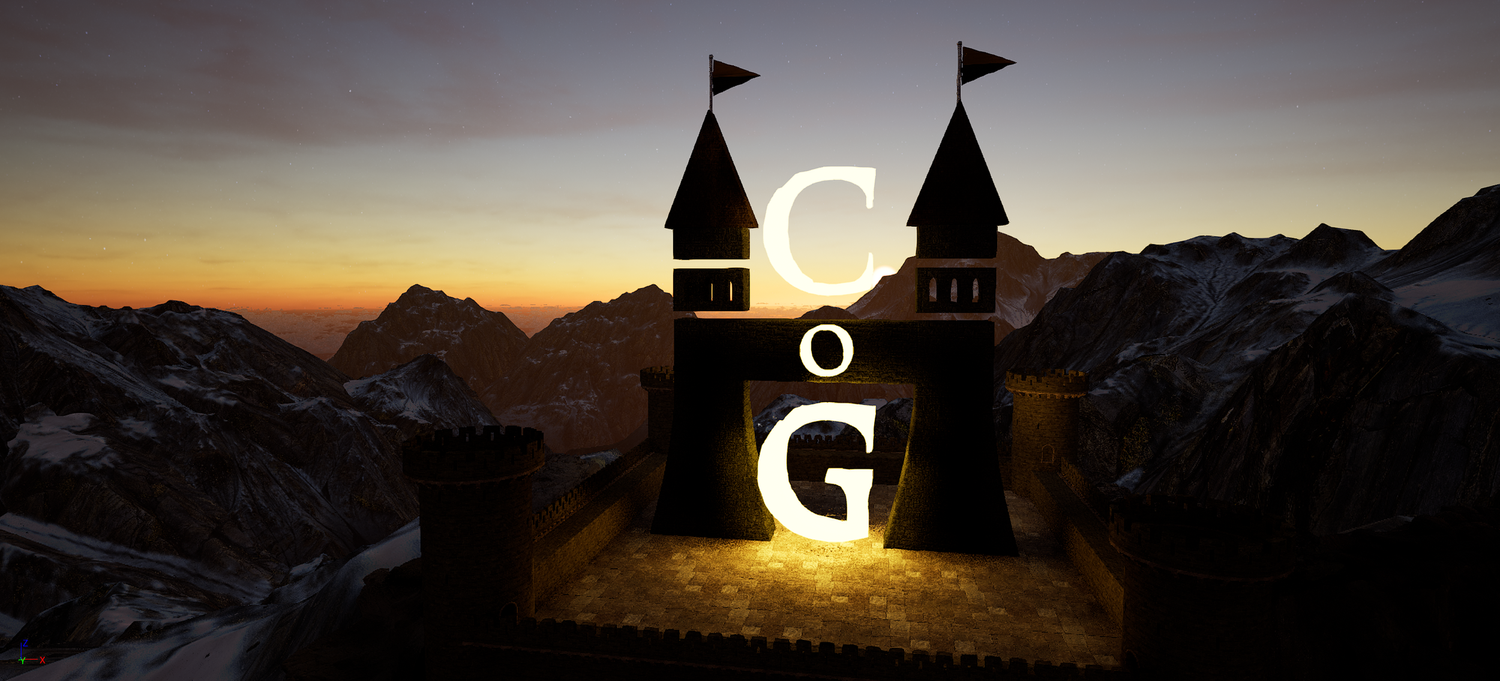
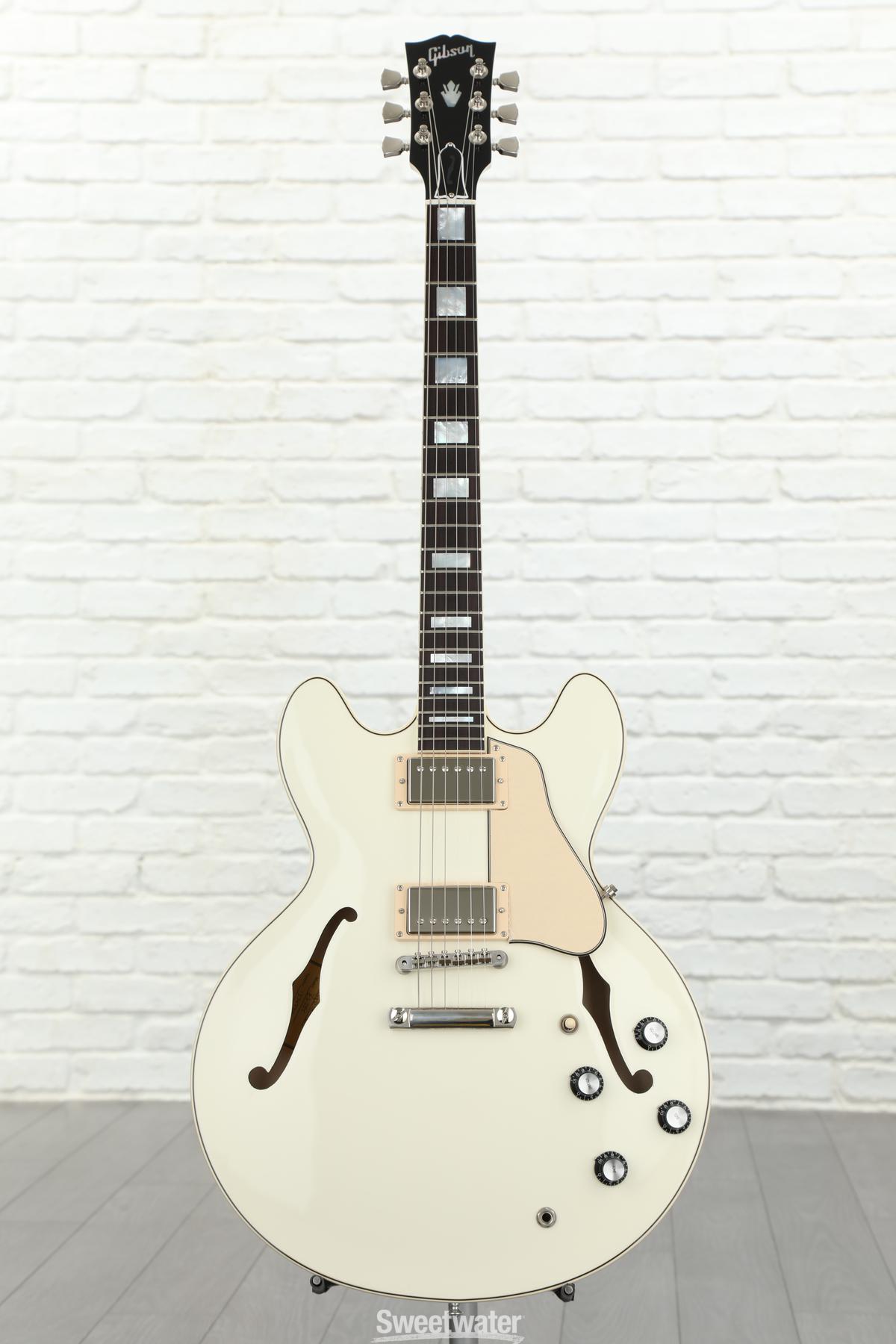
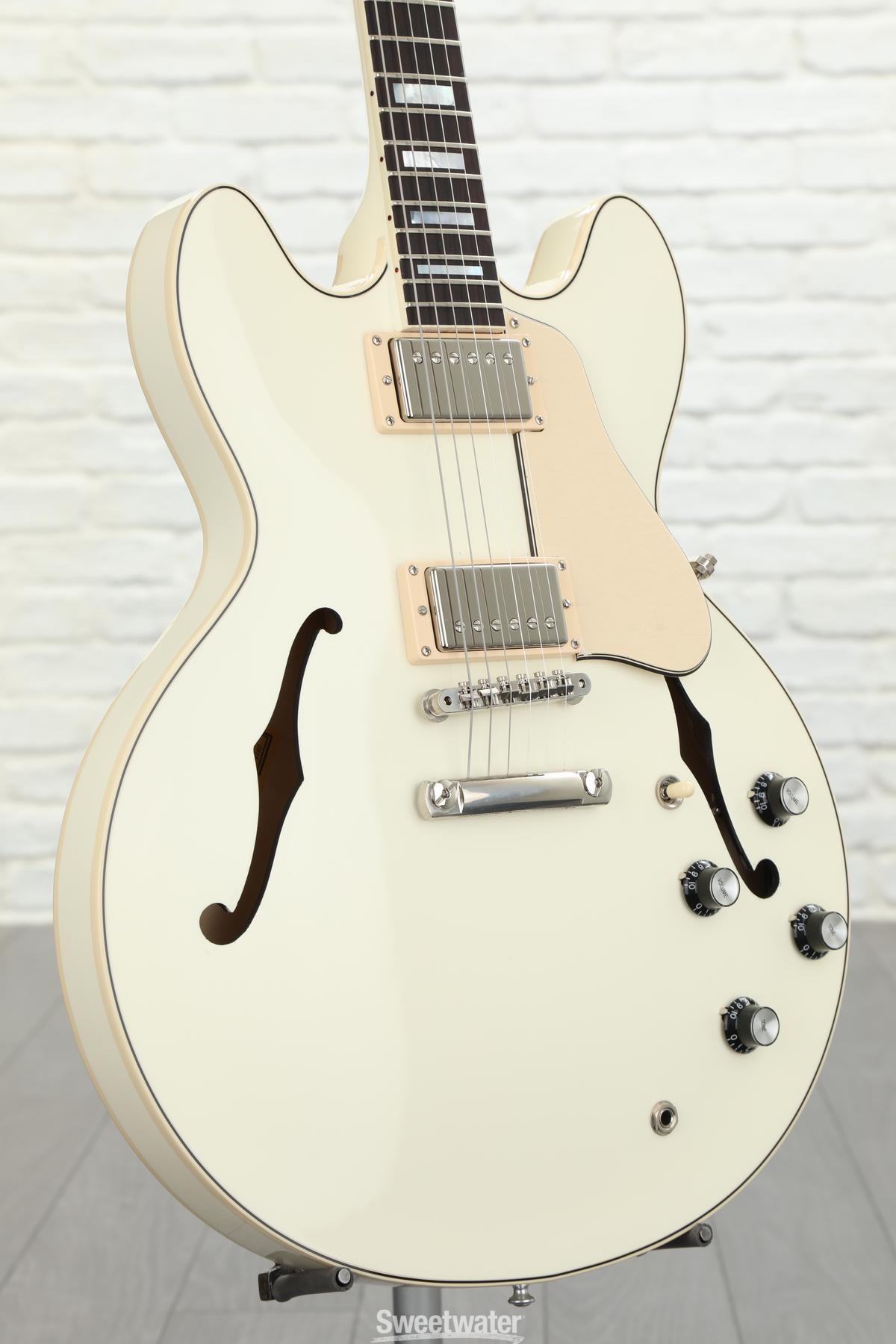
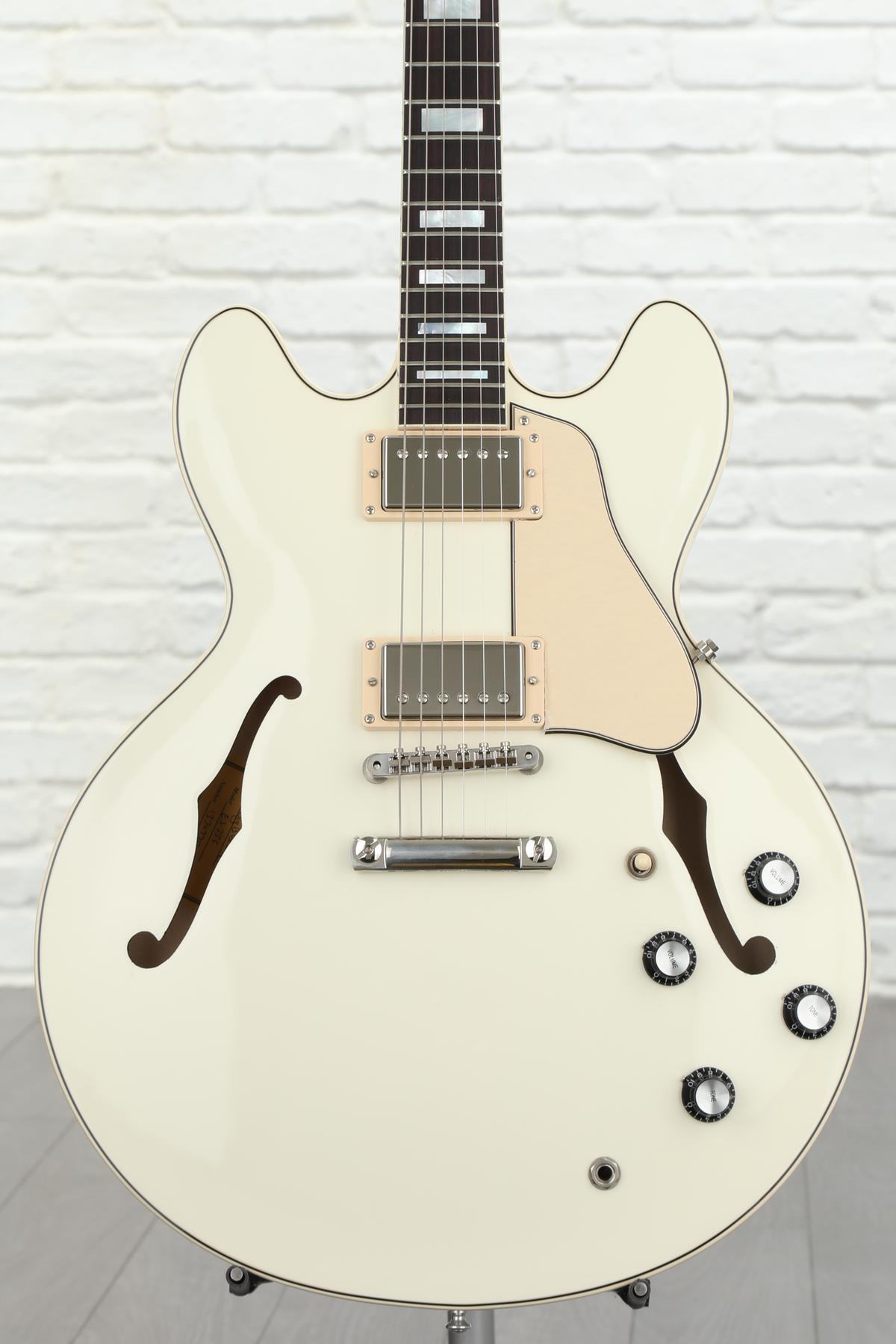
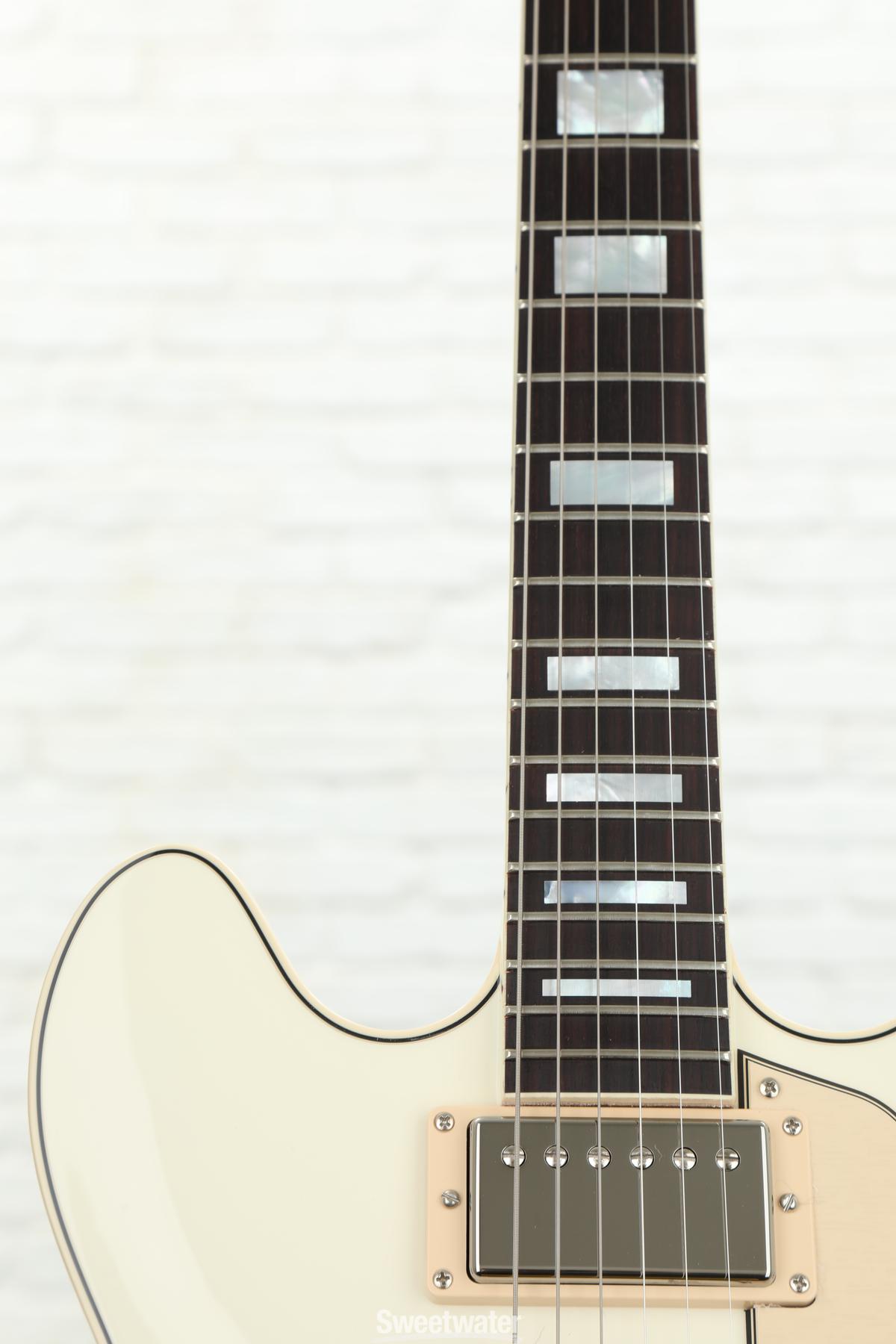
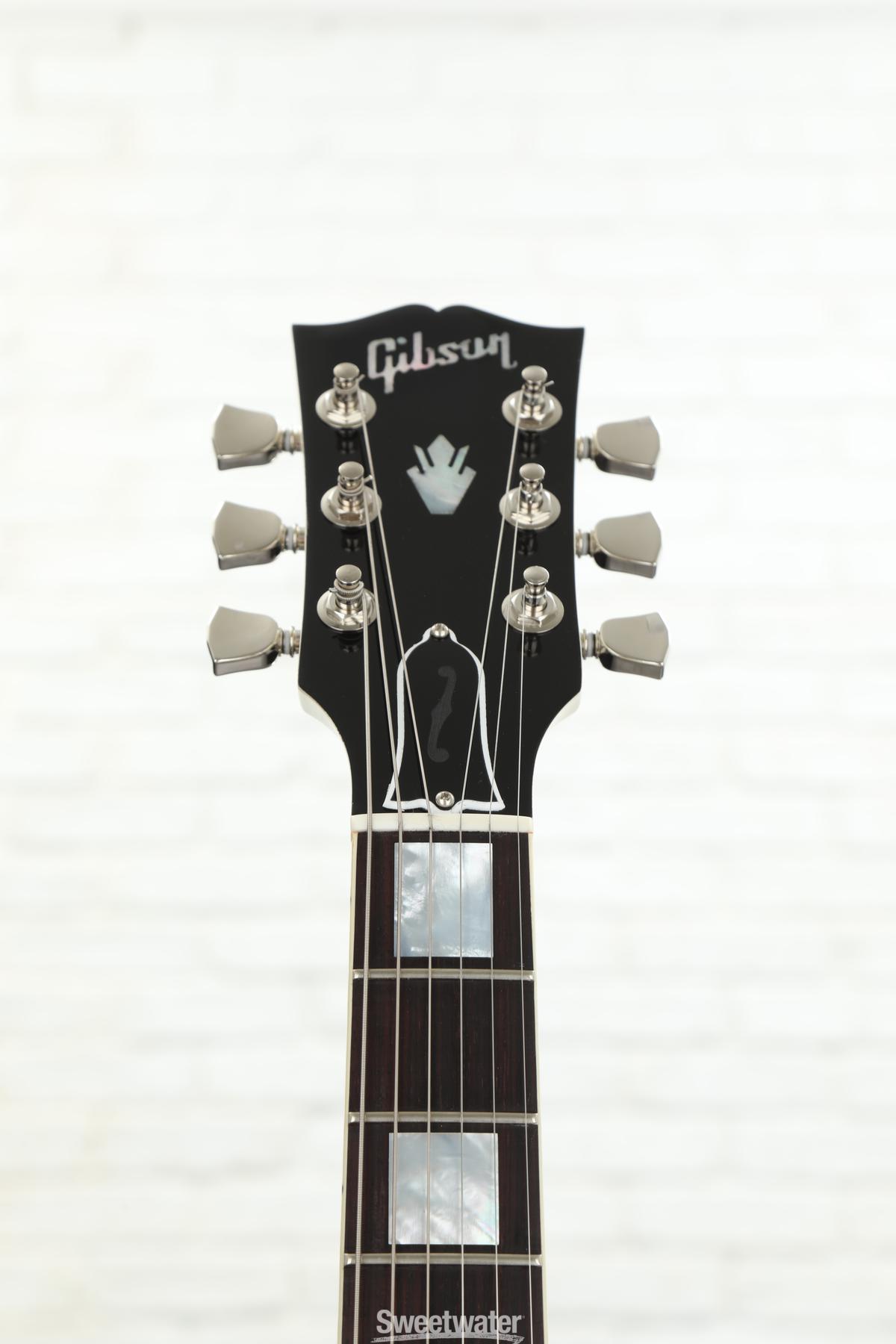

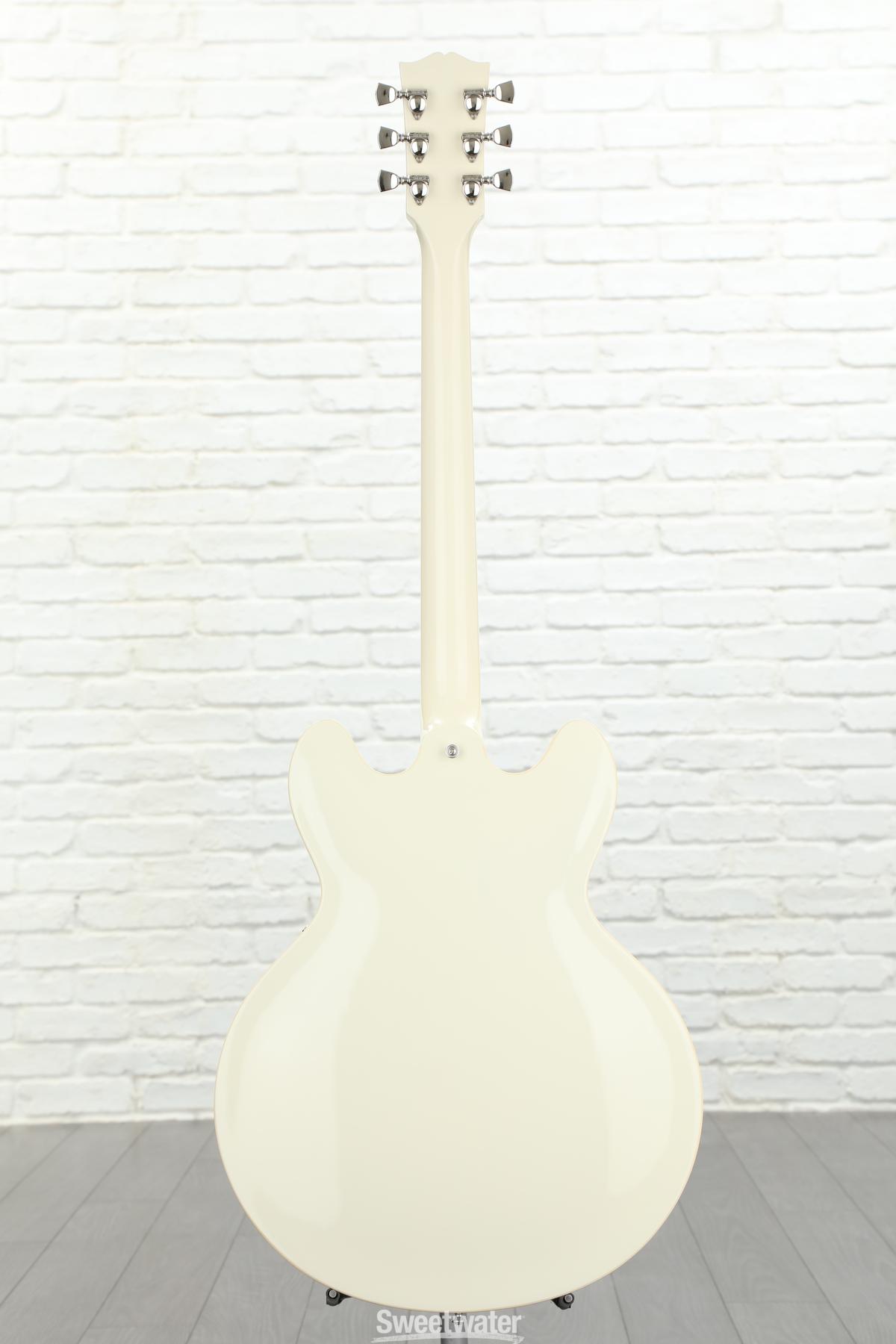
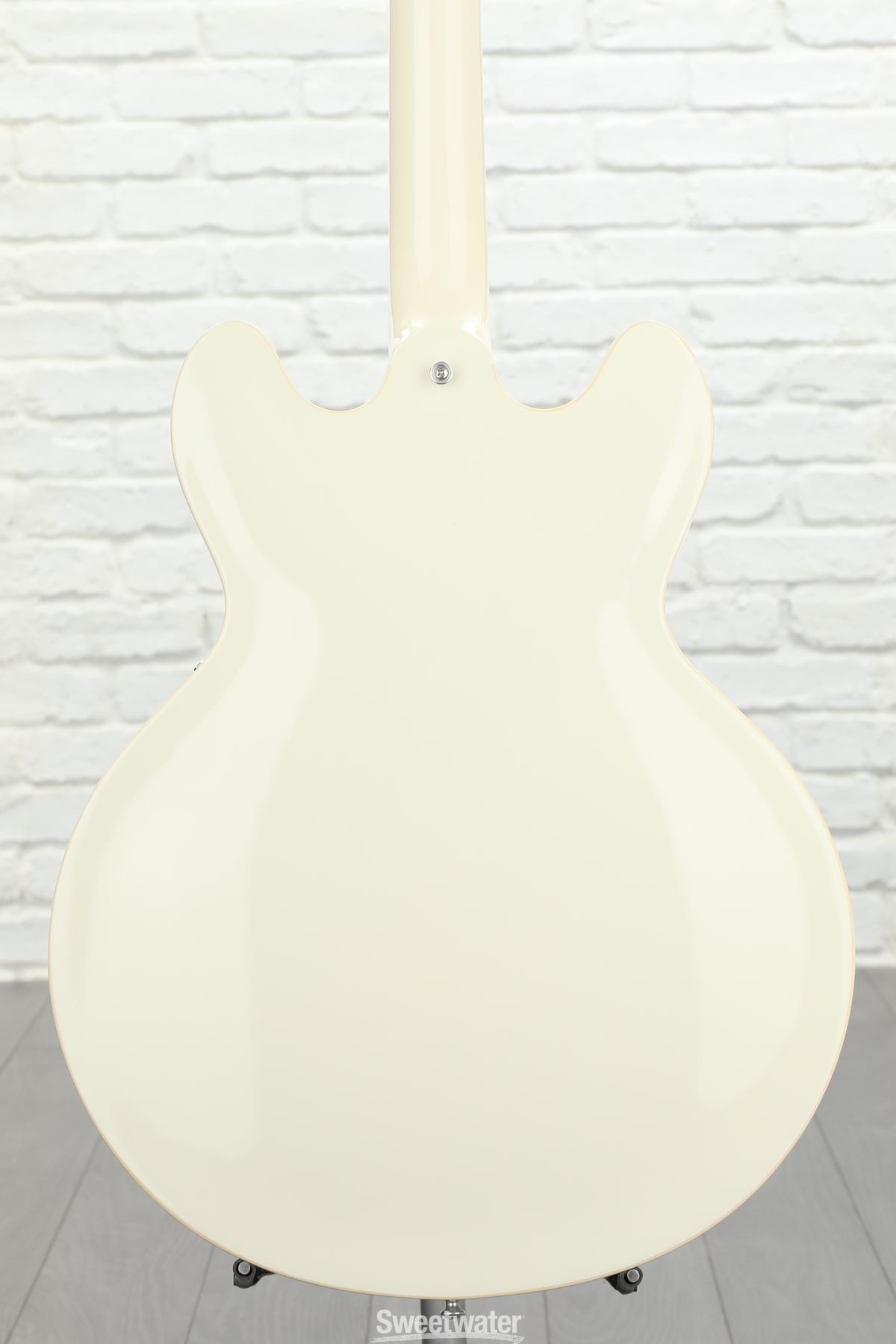
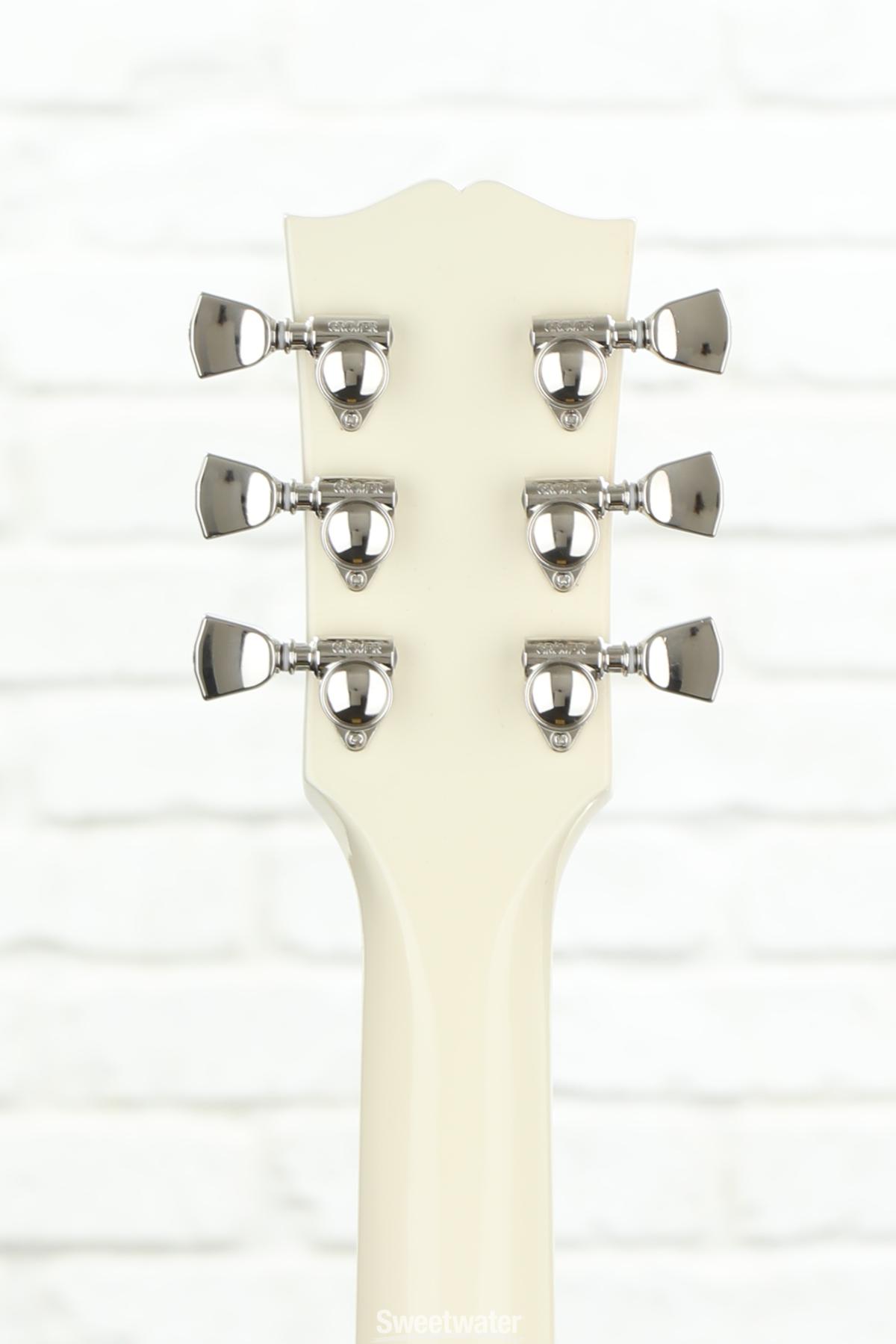
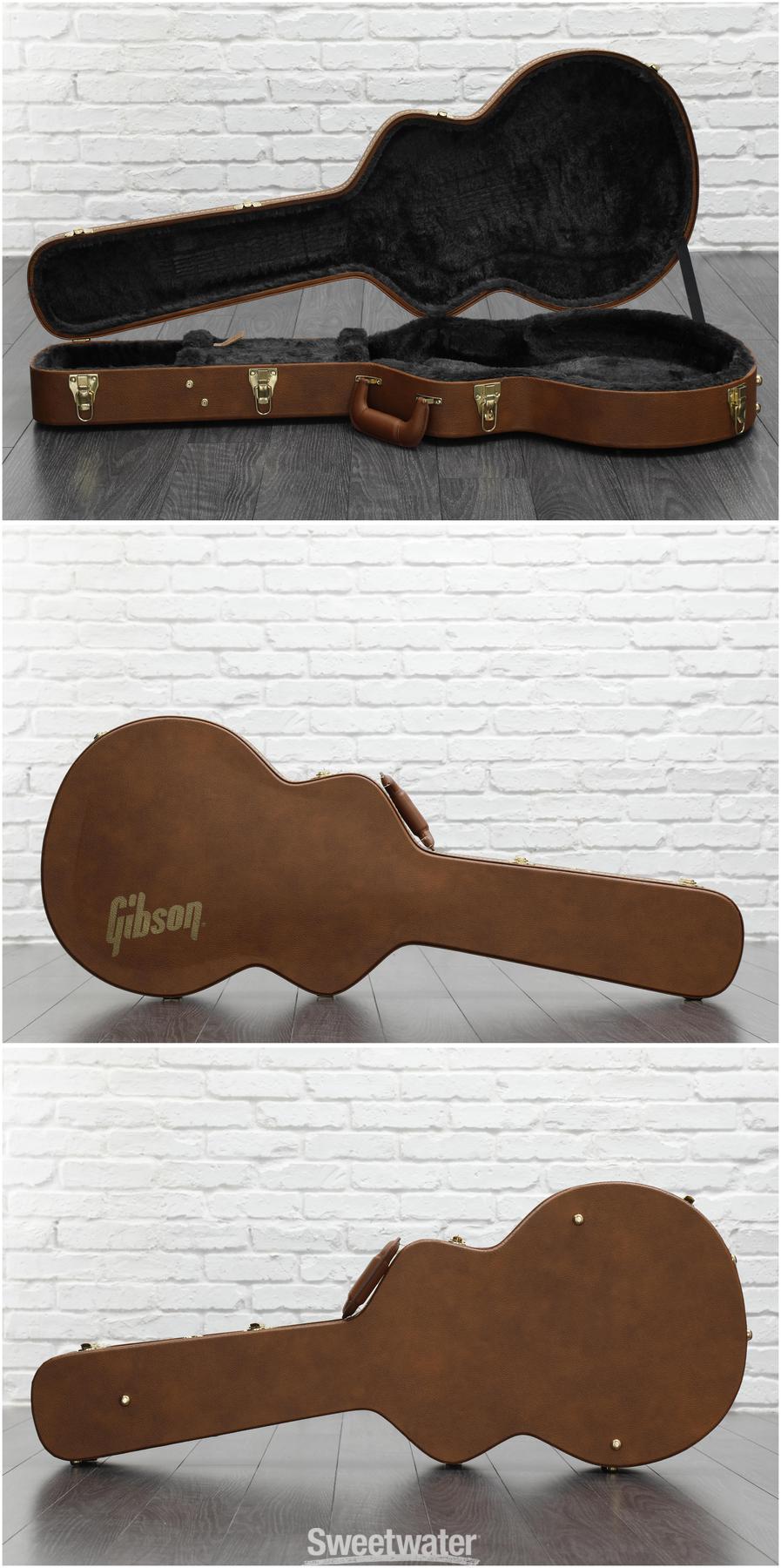
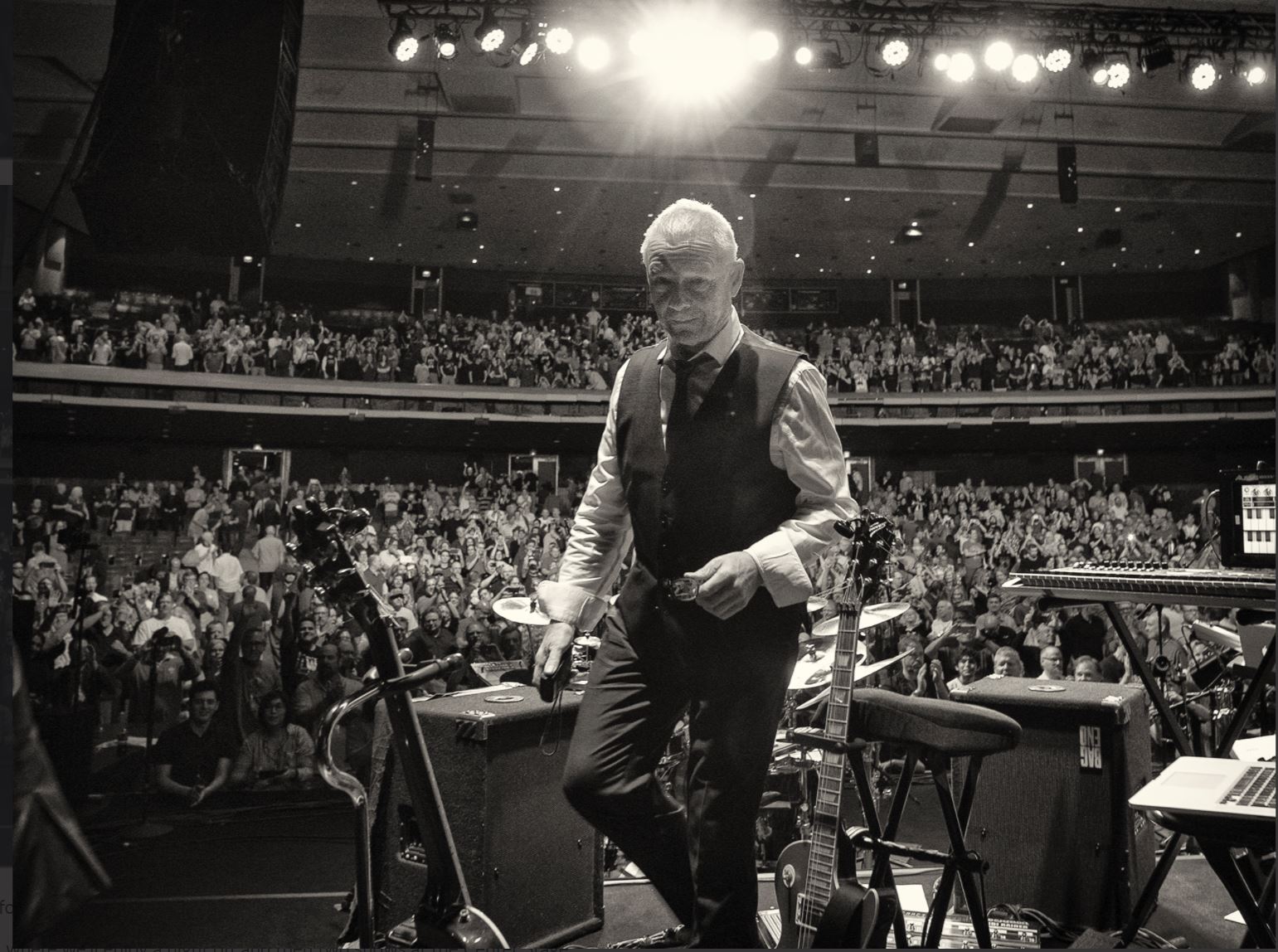
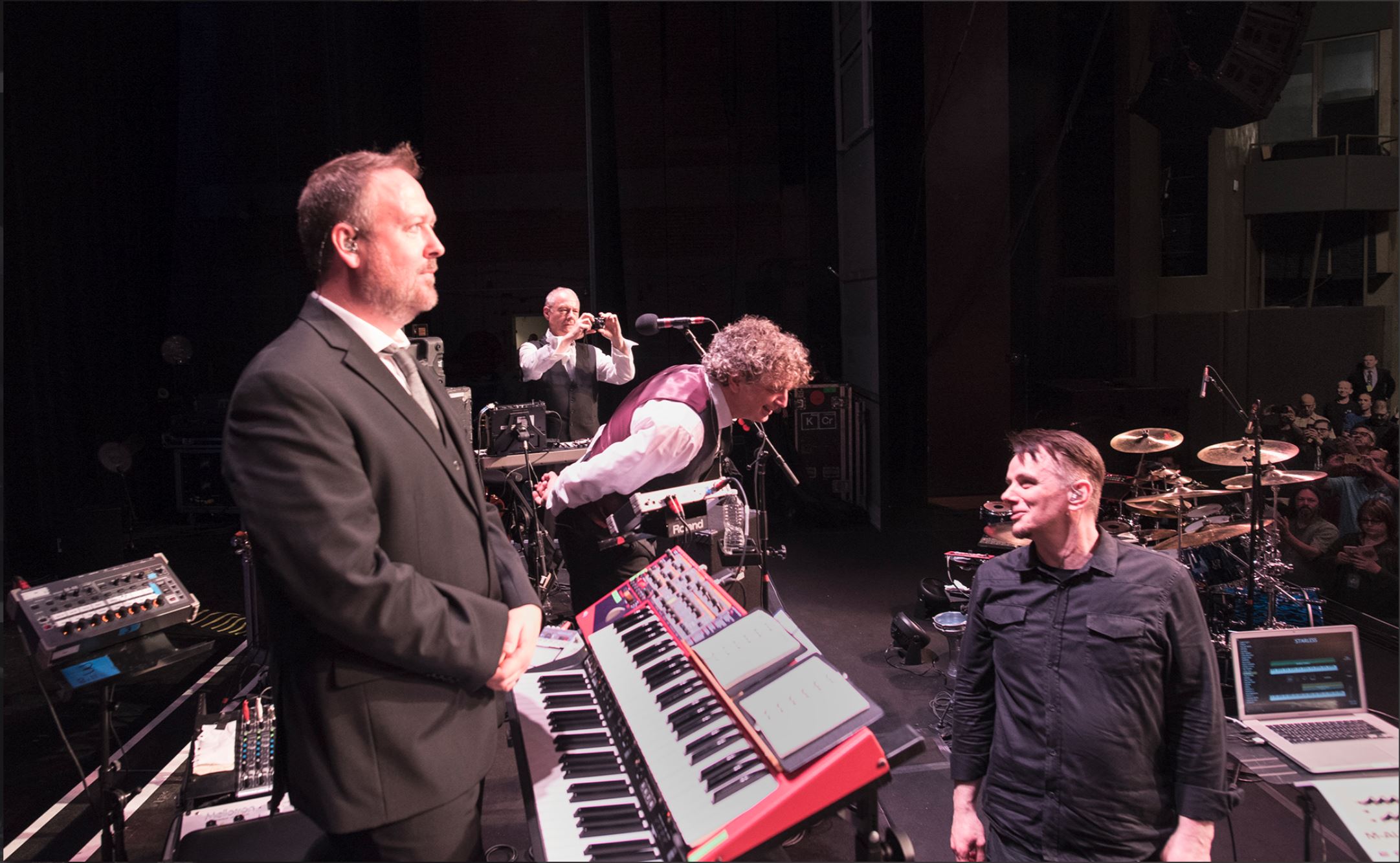
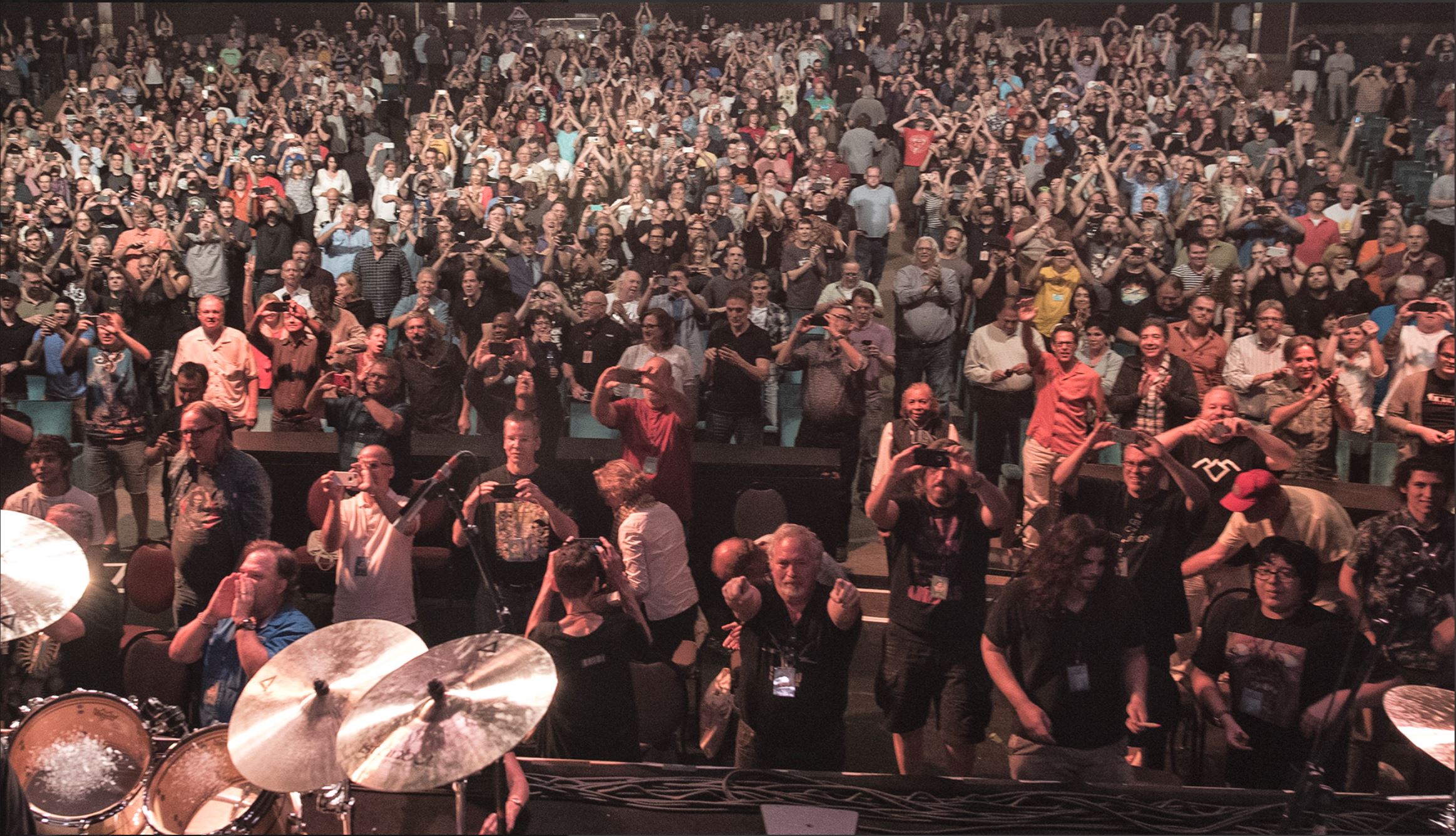
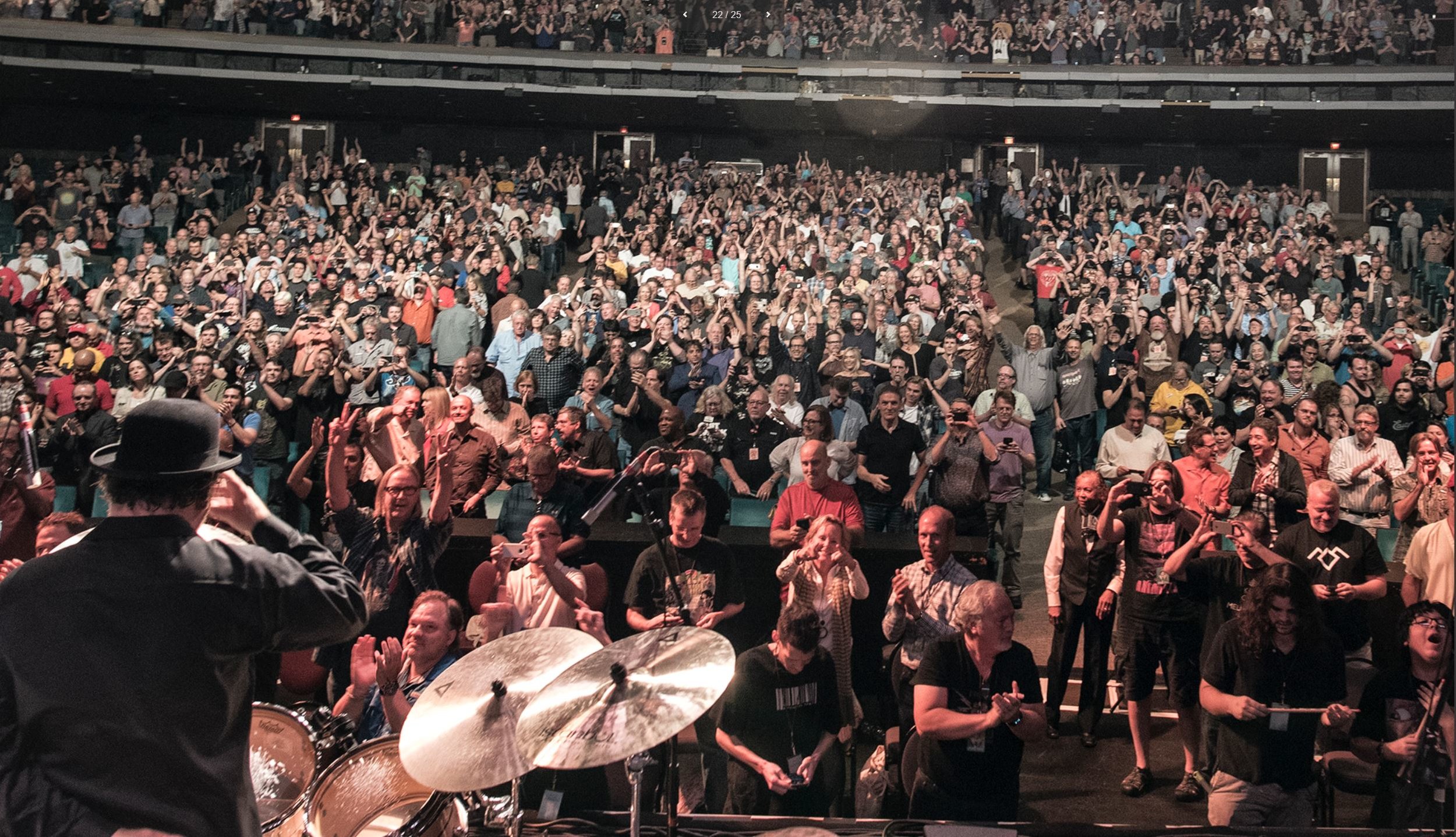
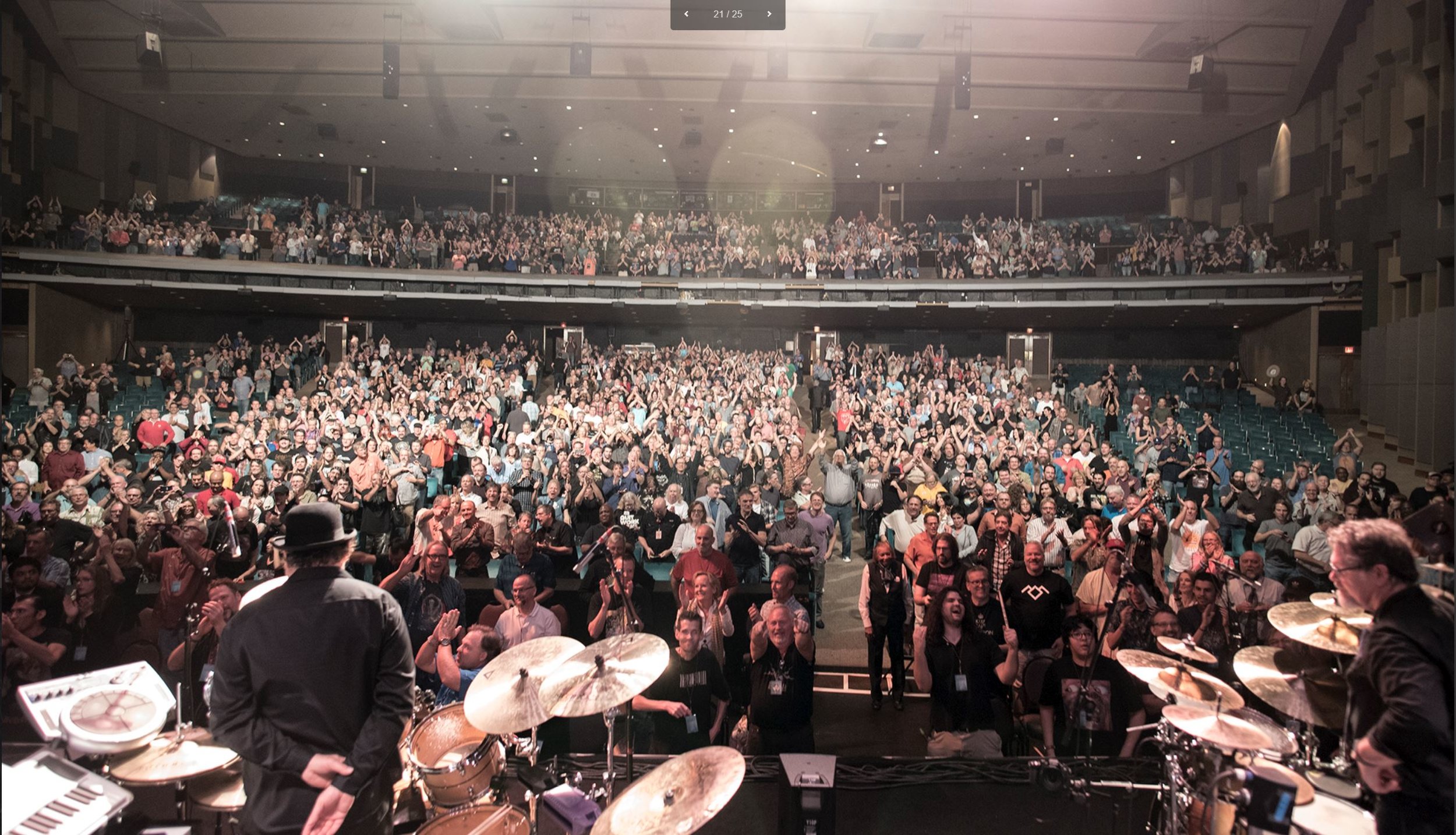
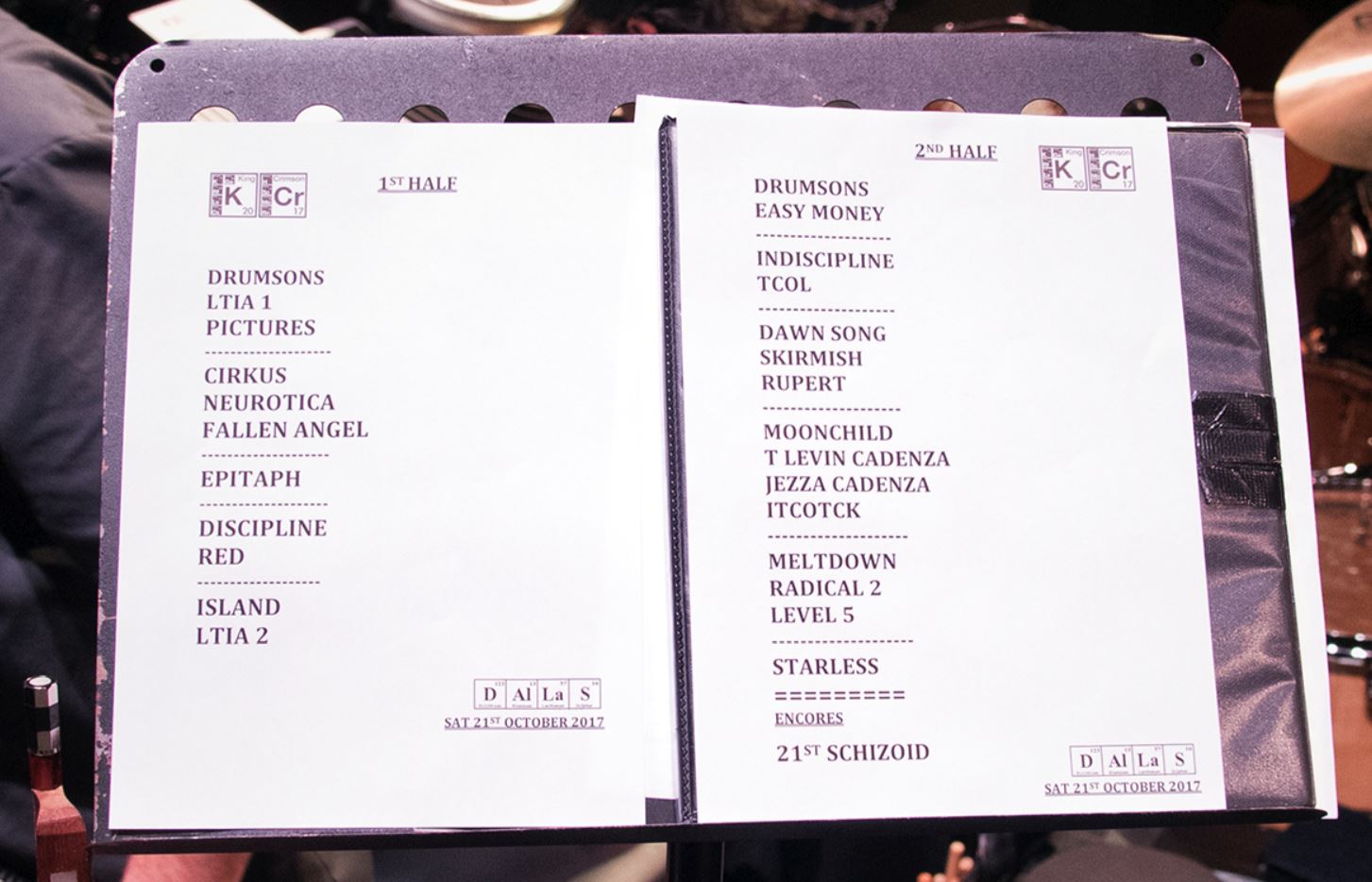
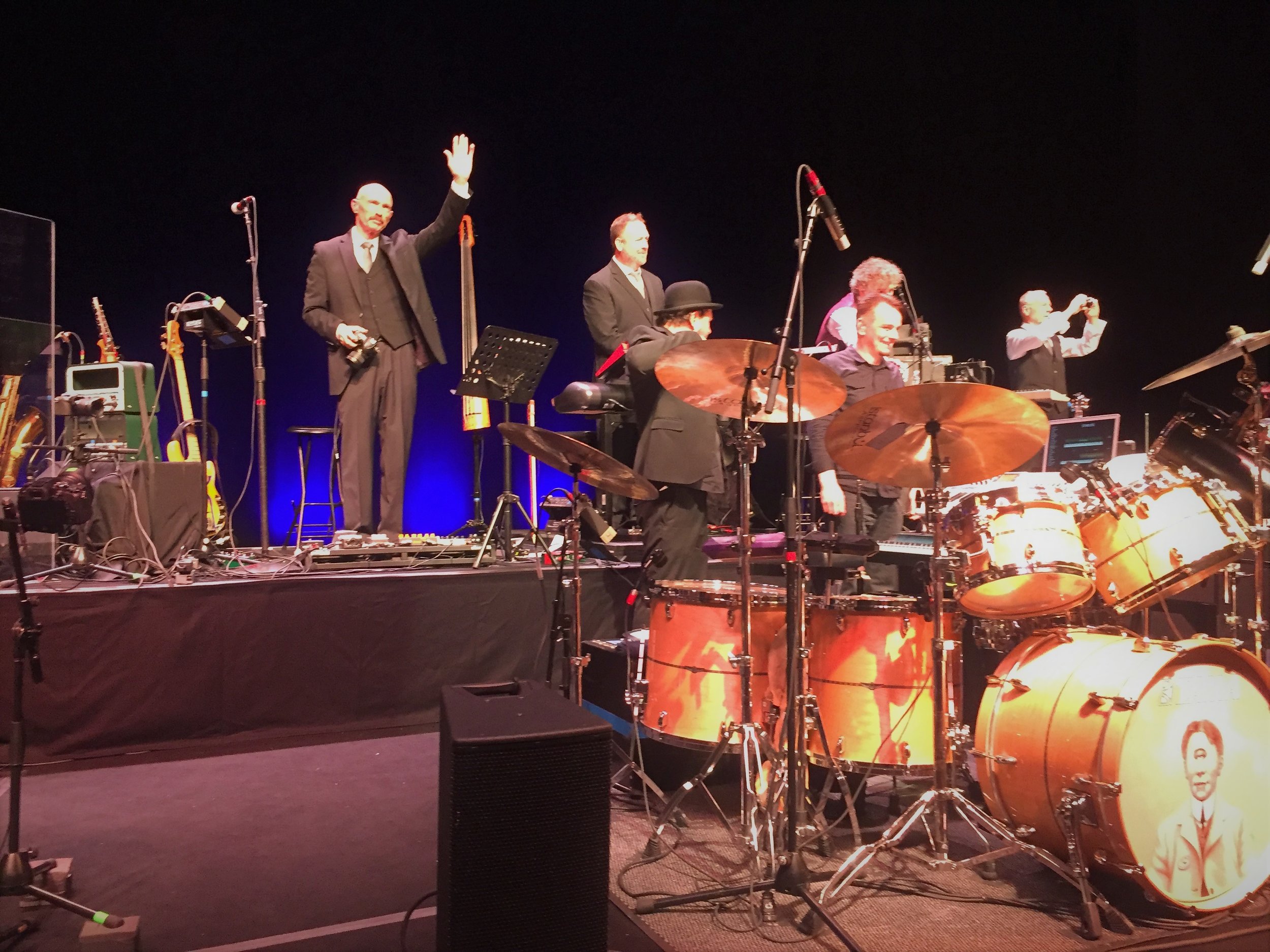
![jpearlscourtlondonmay197507xd6[1]](http://farm3.static.flickr.com/2357/2406974927_e071339d53_o.jpg)





